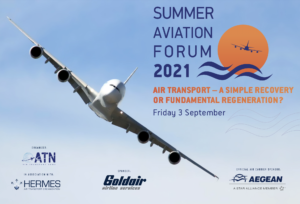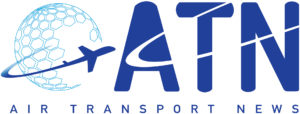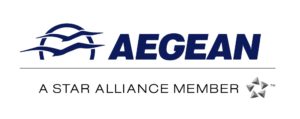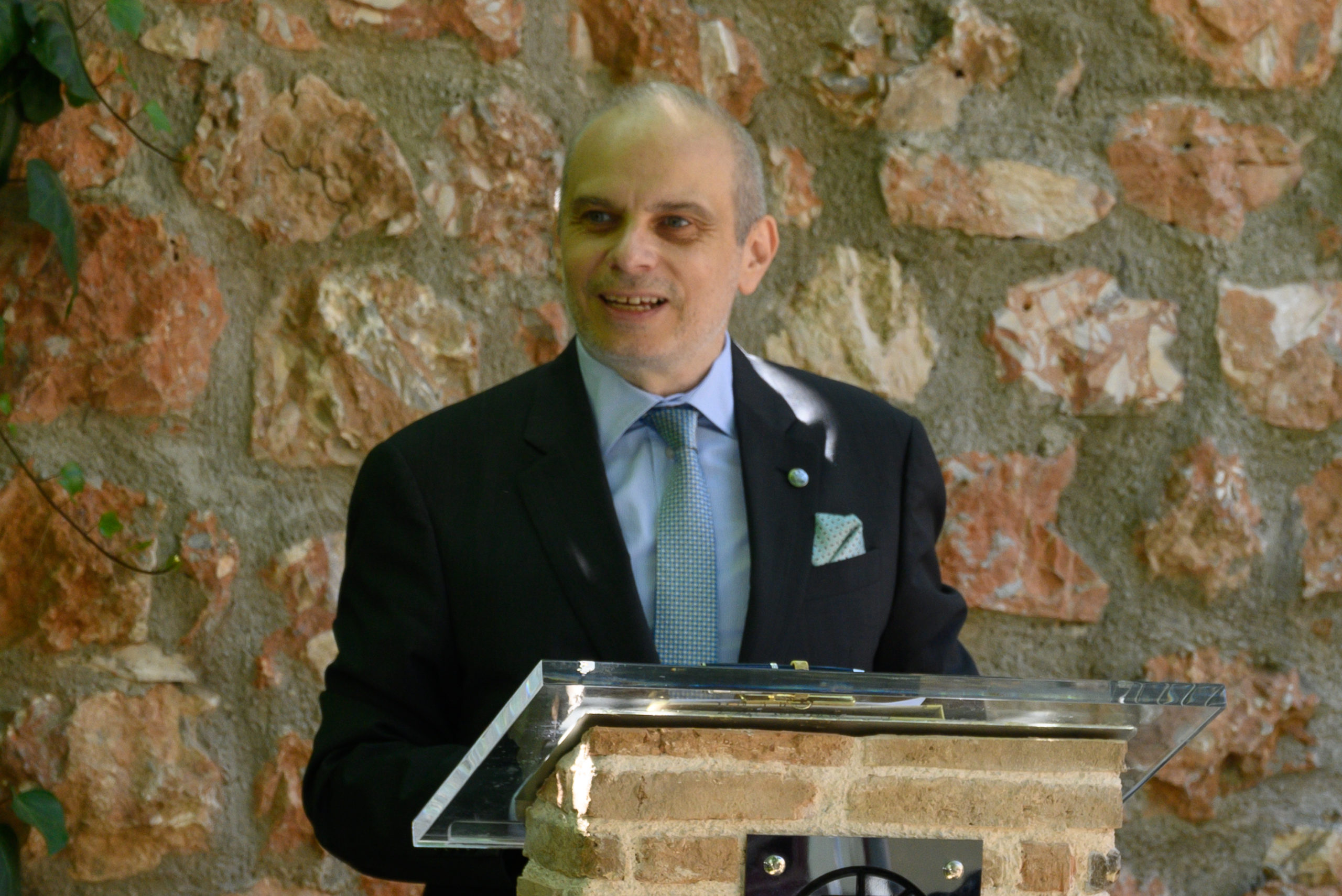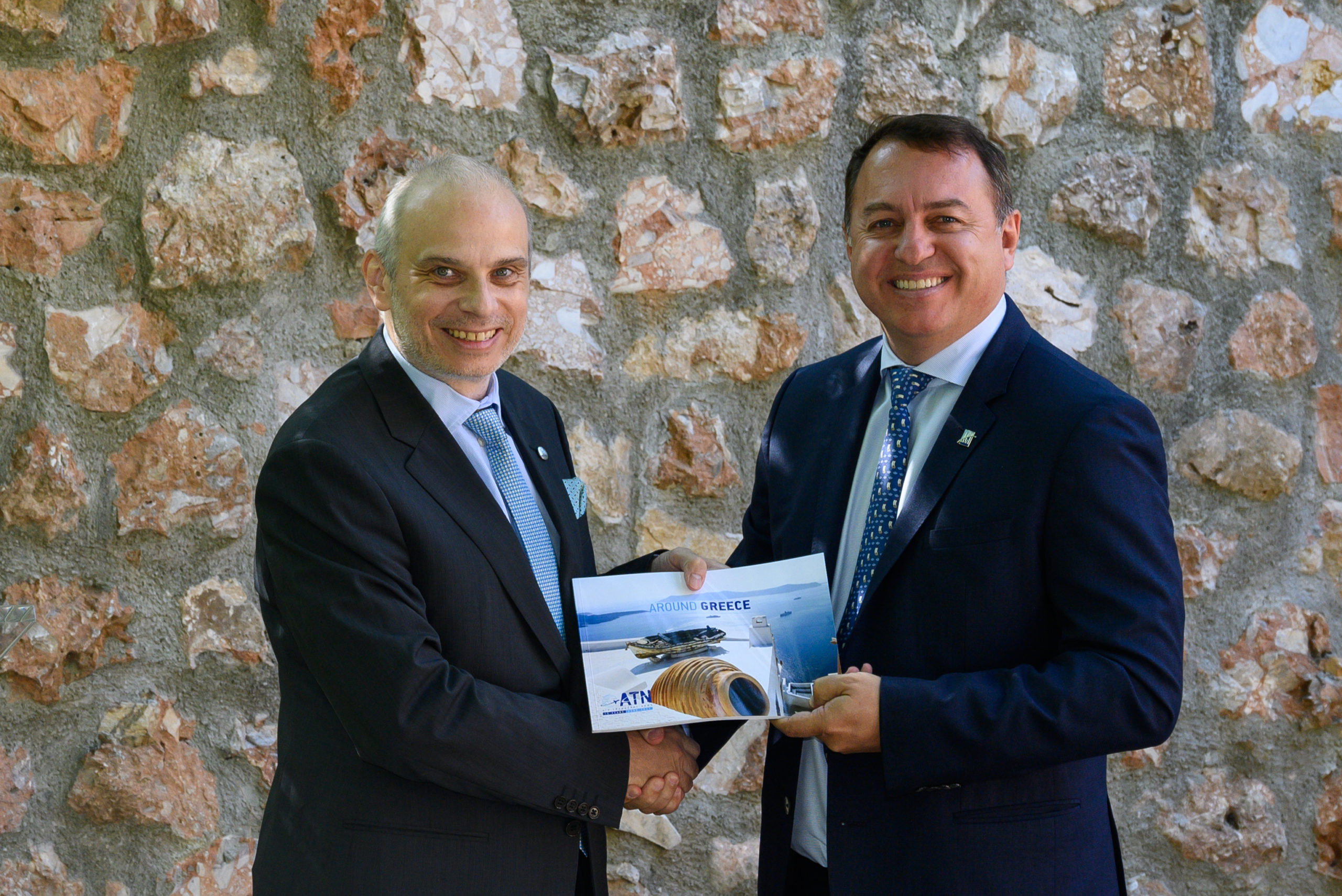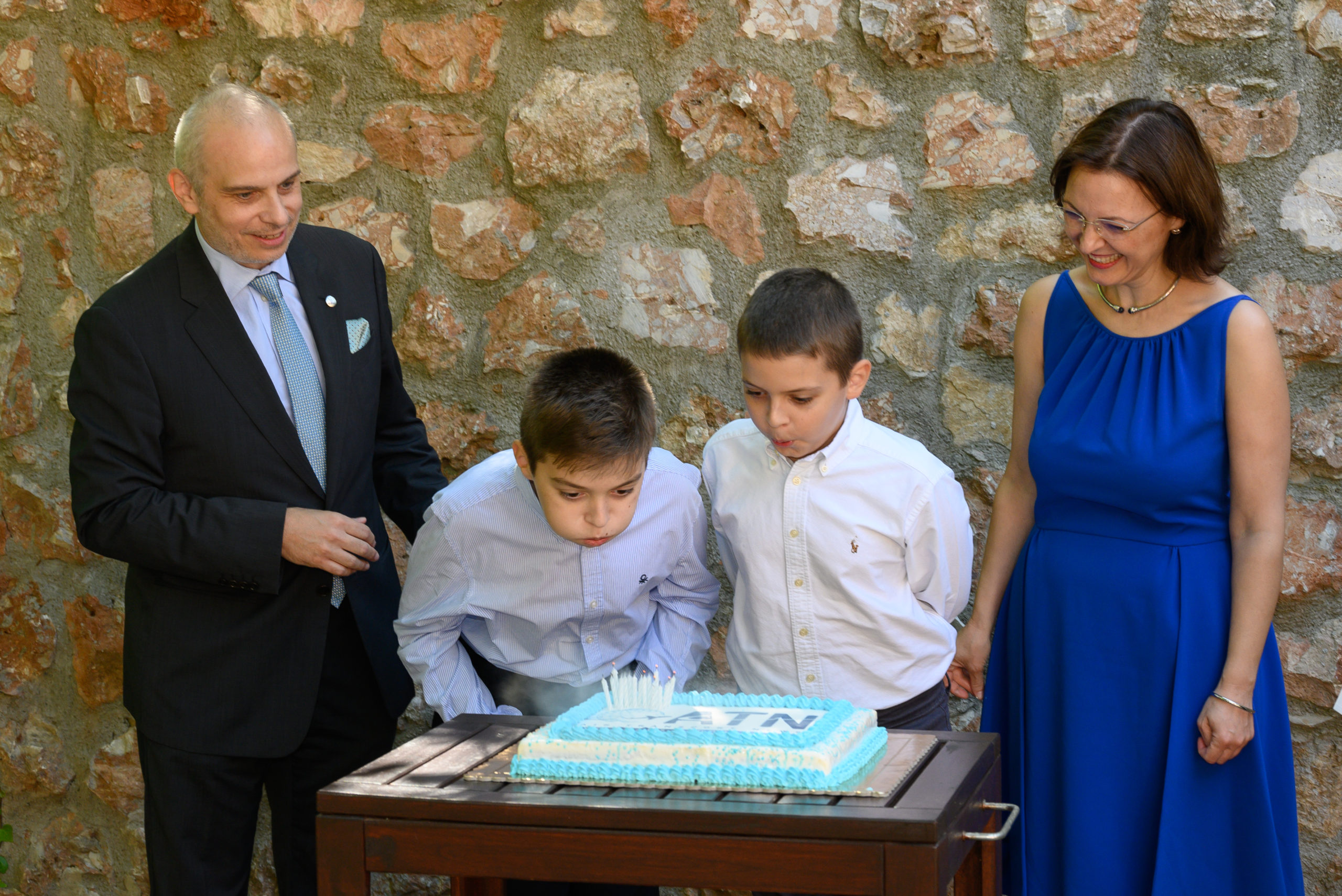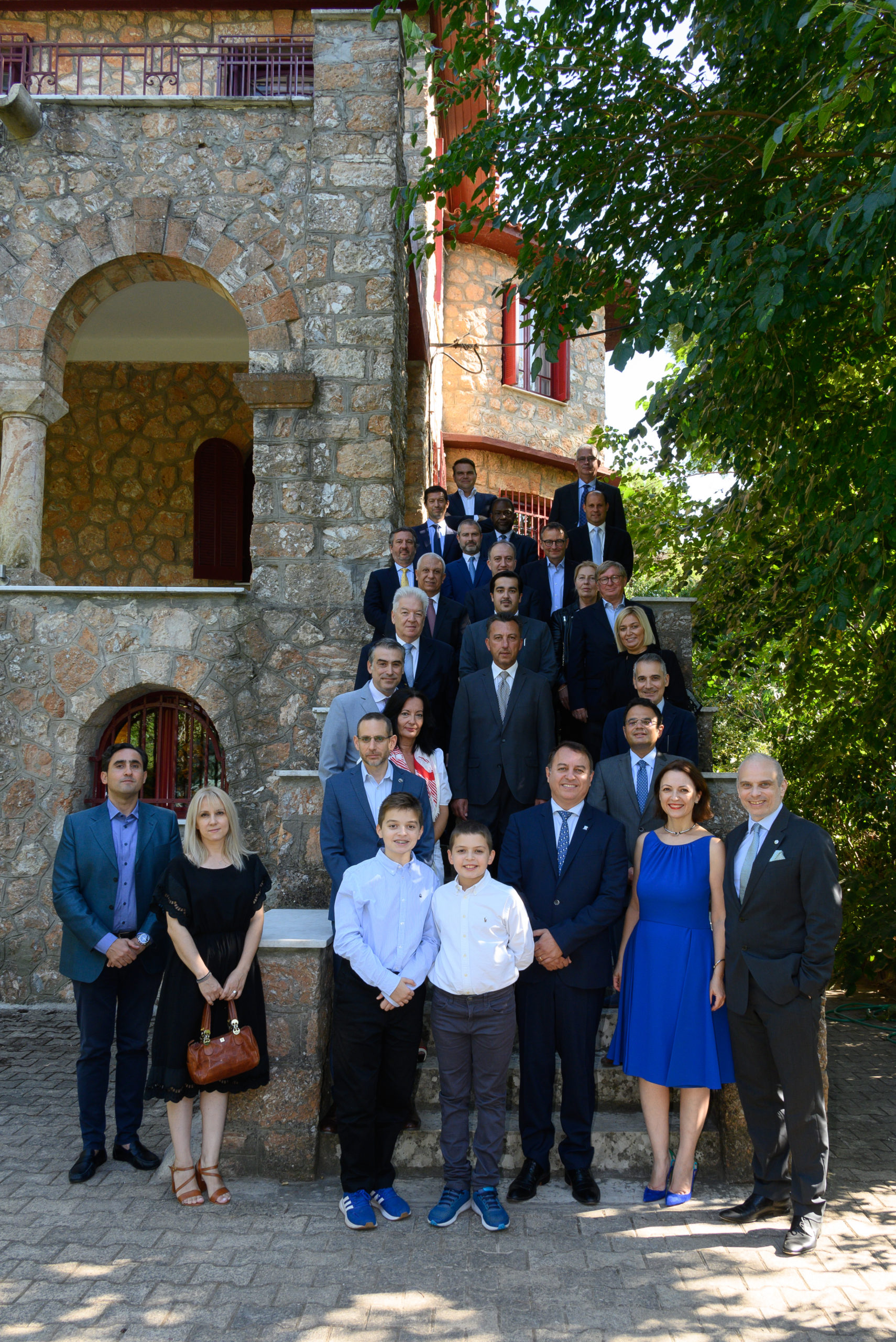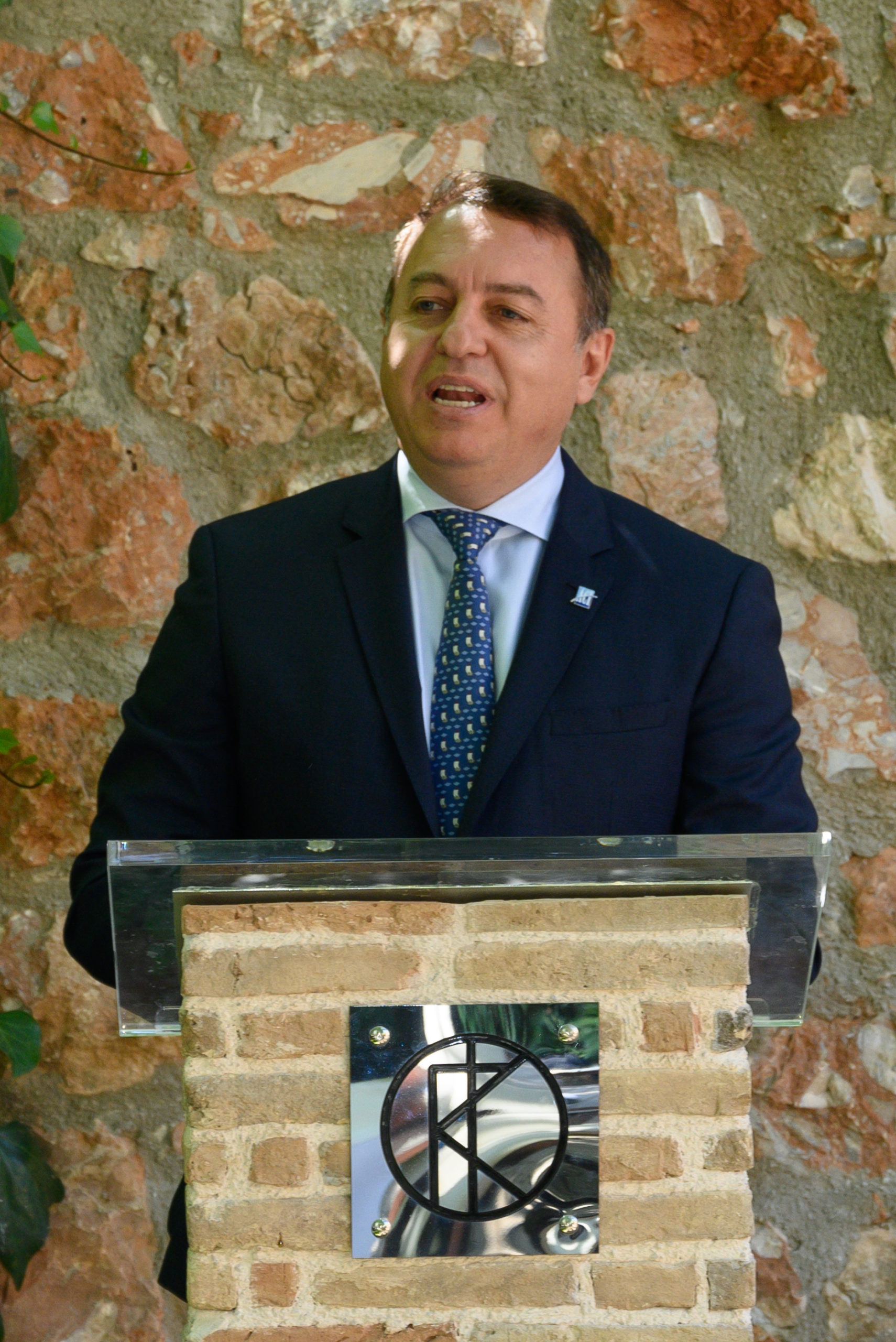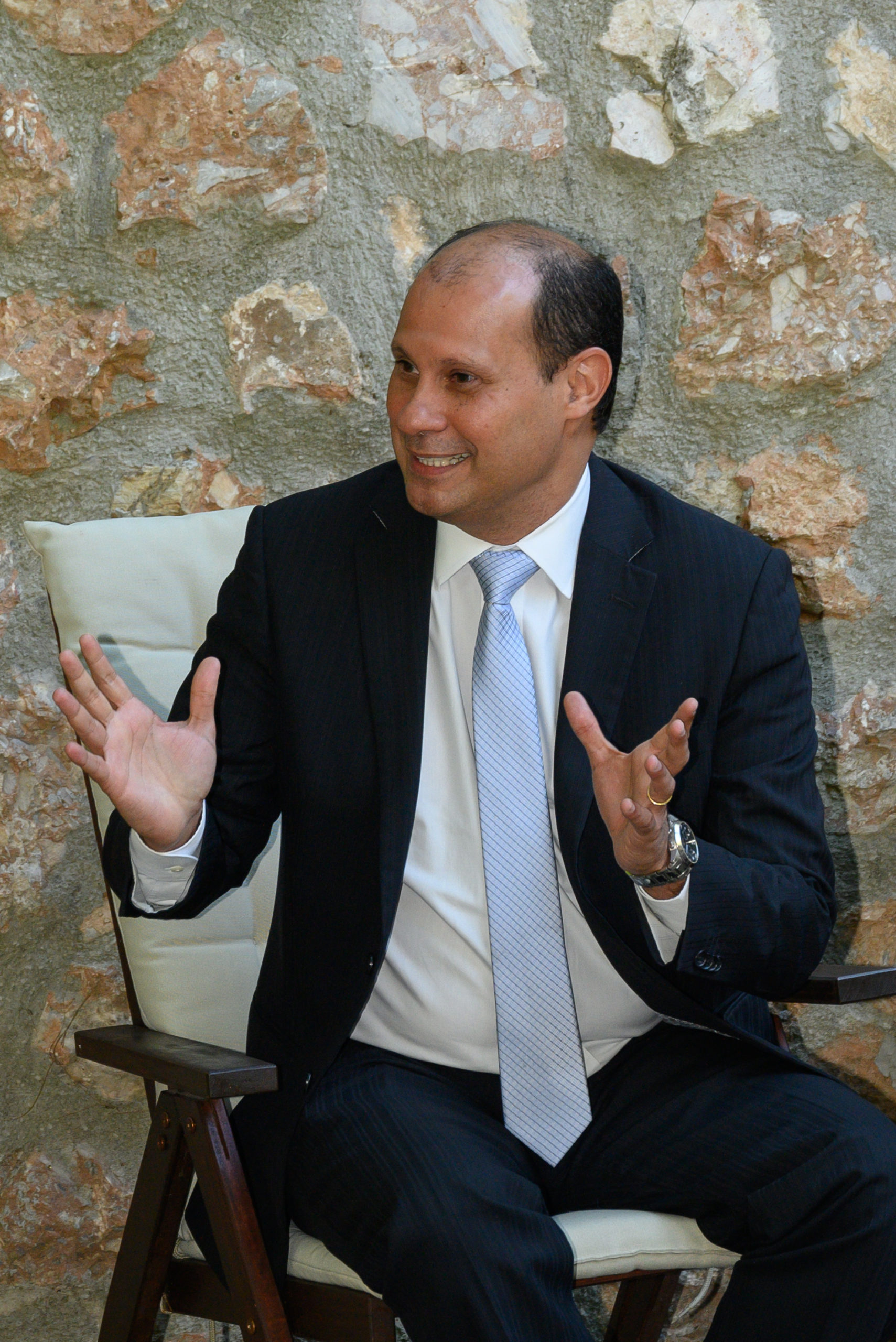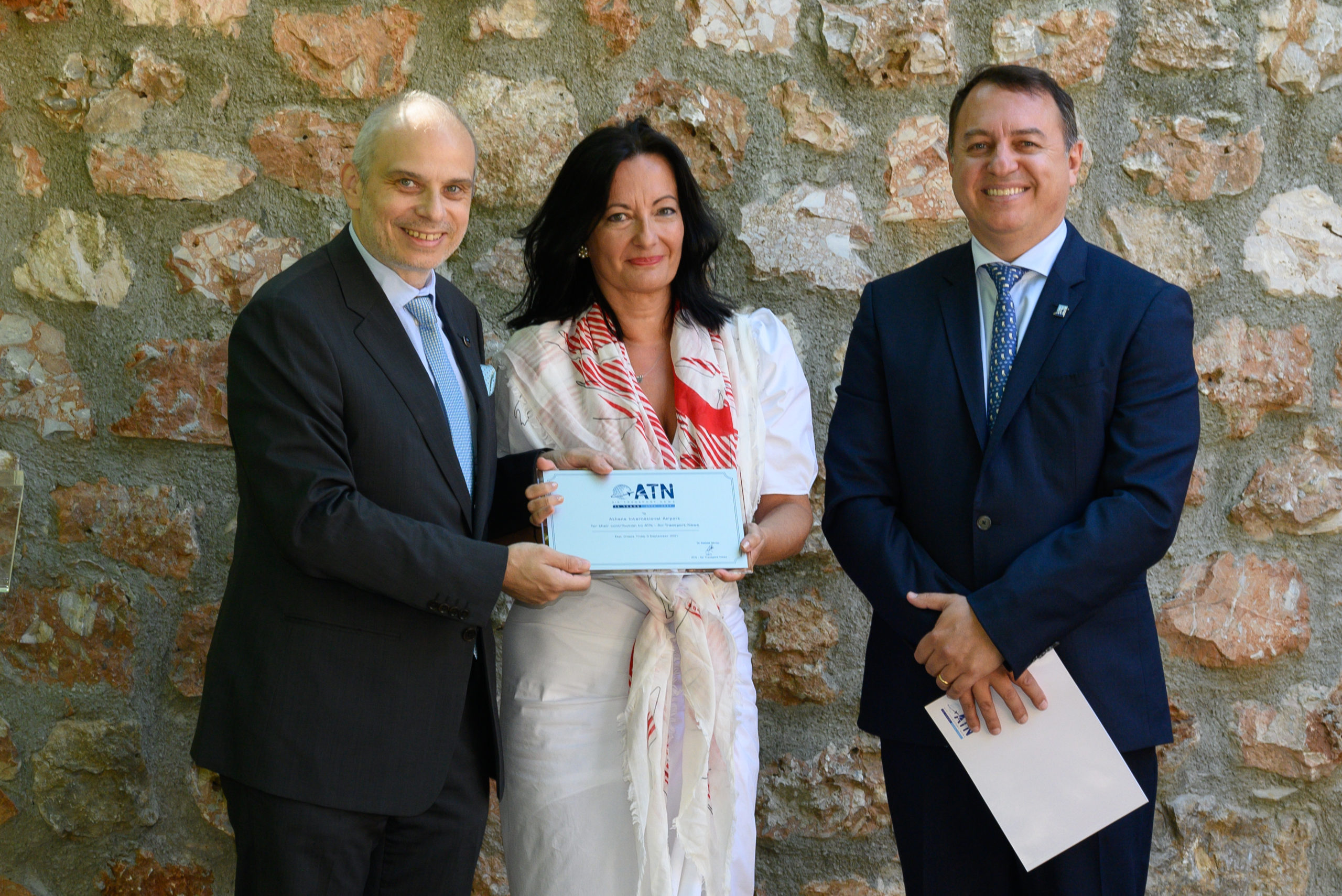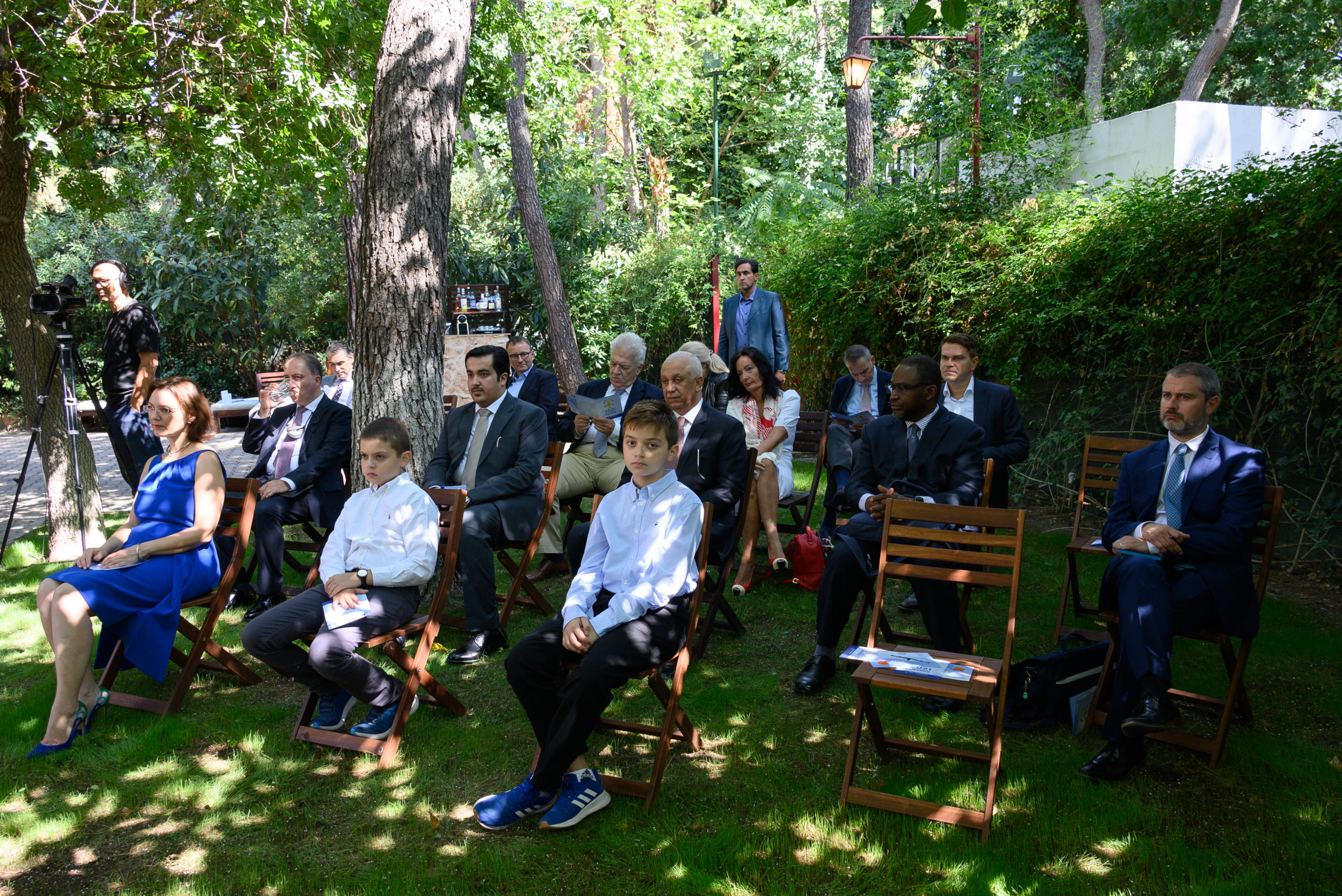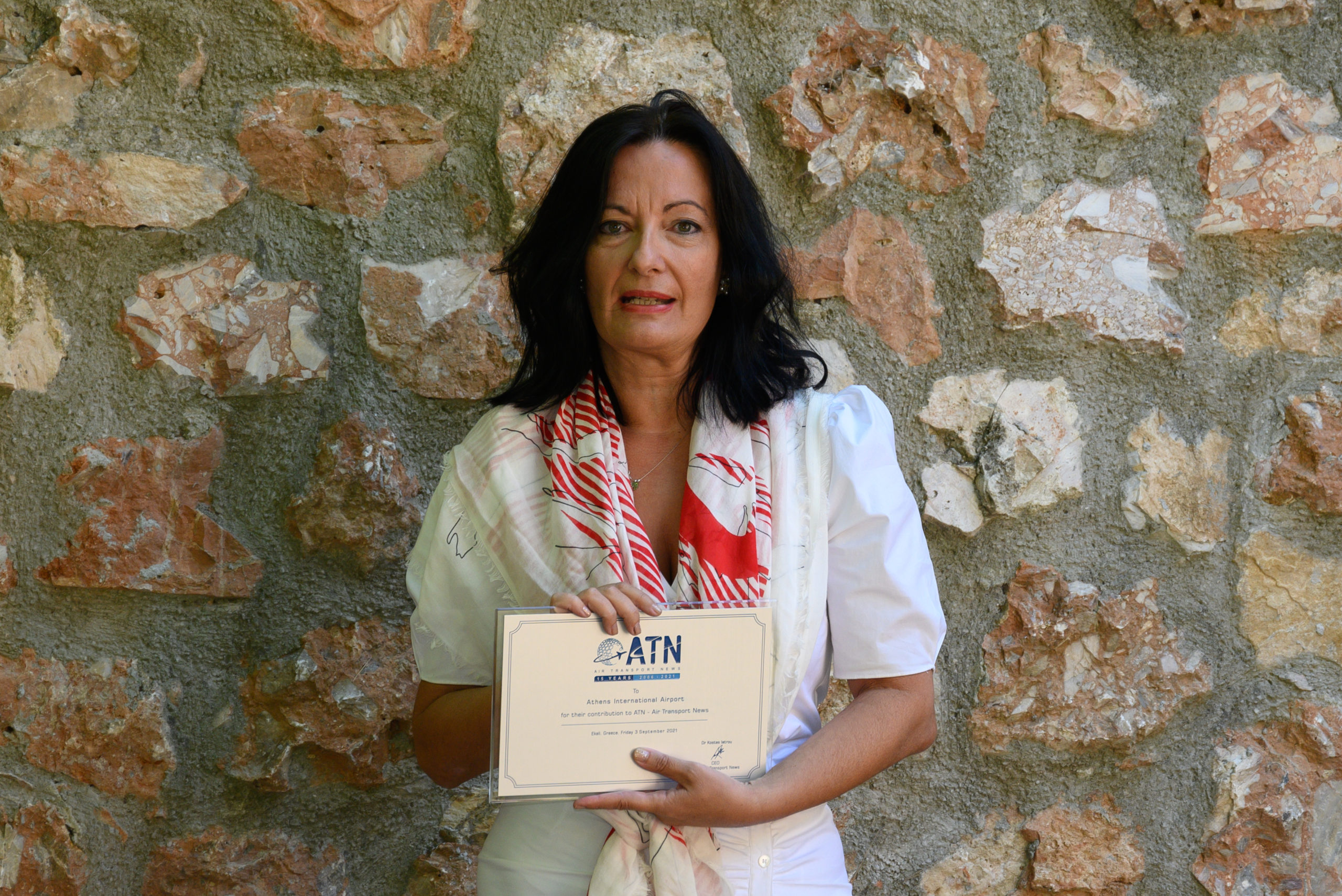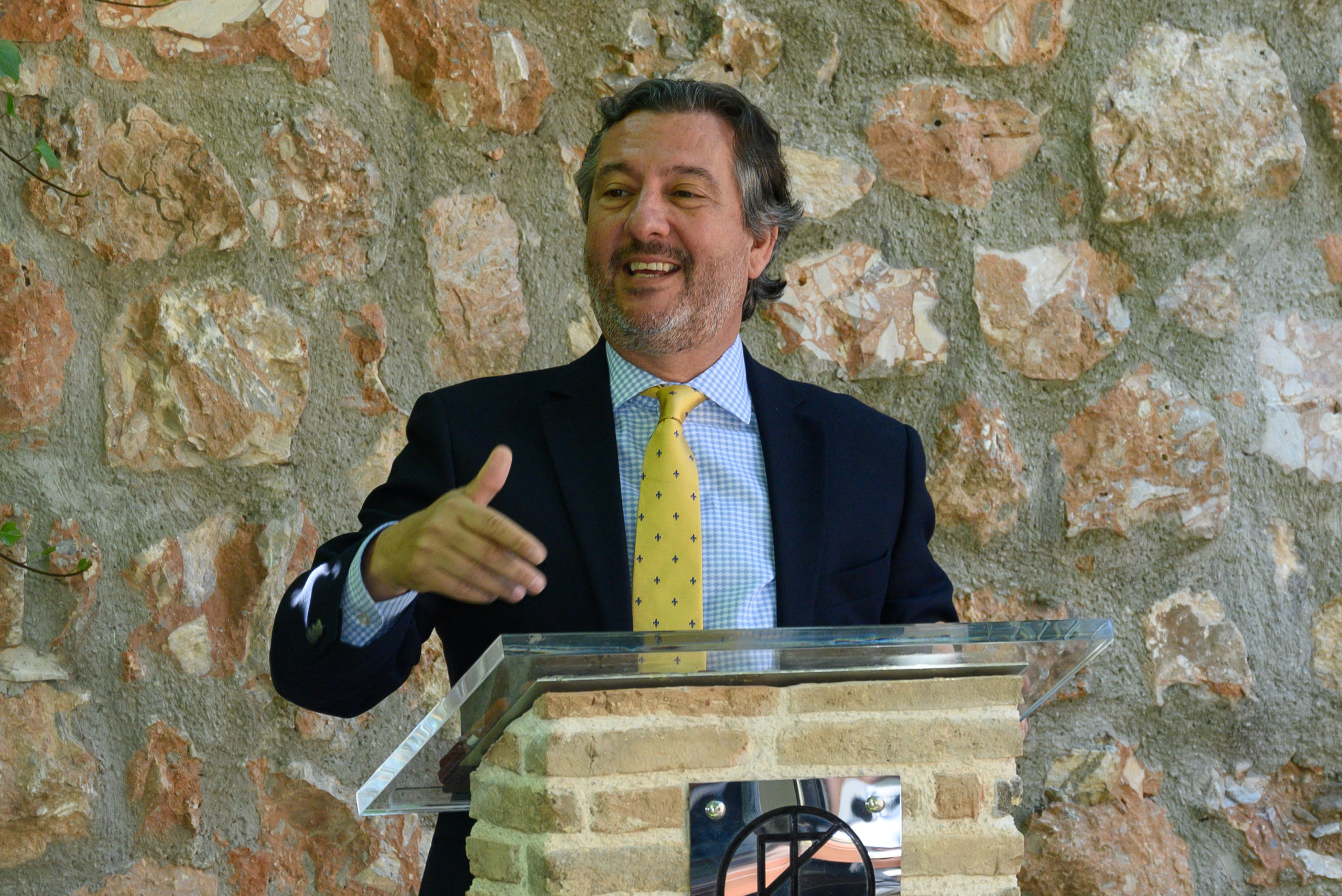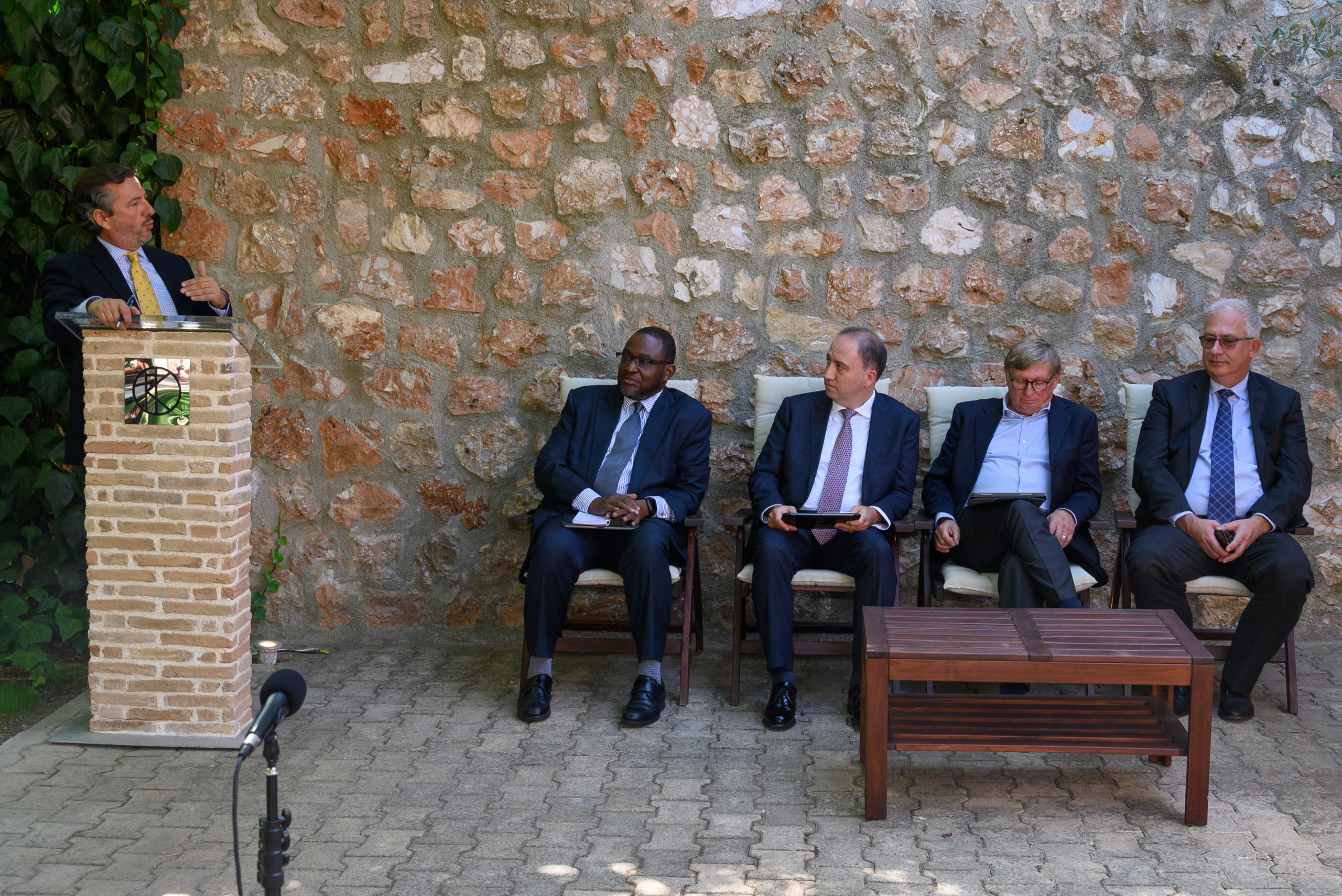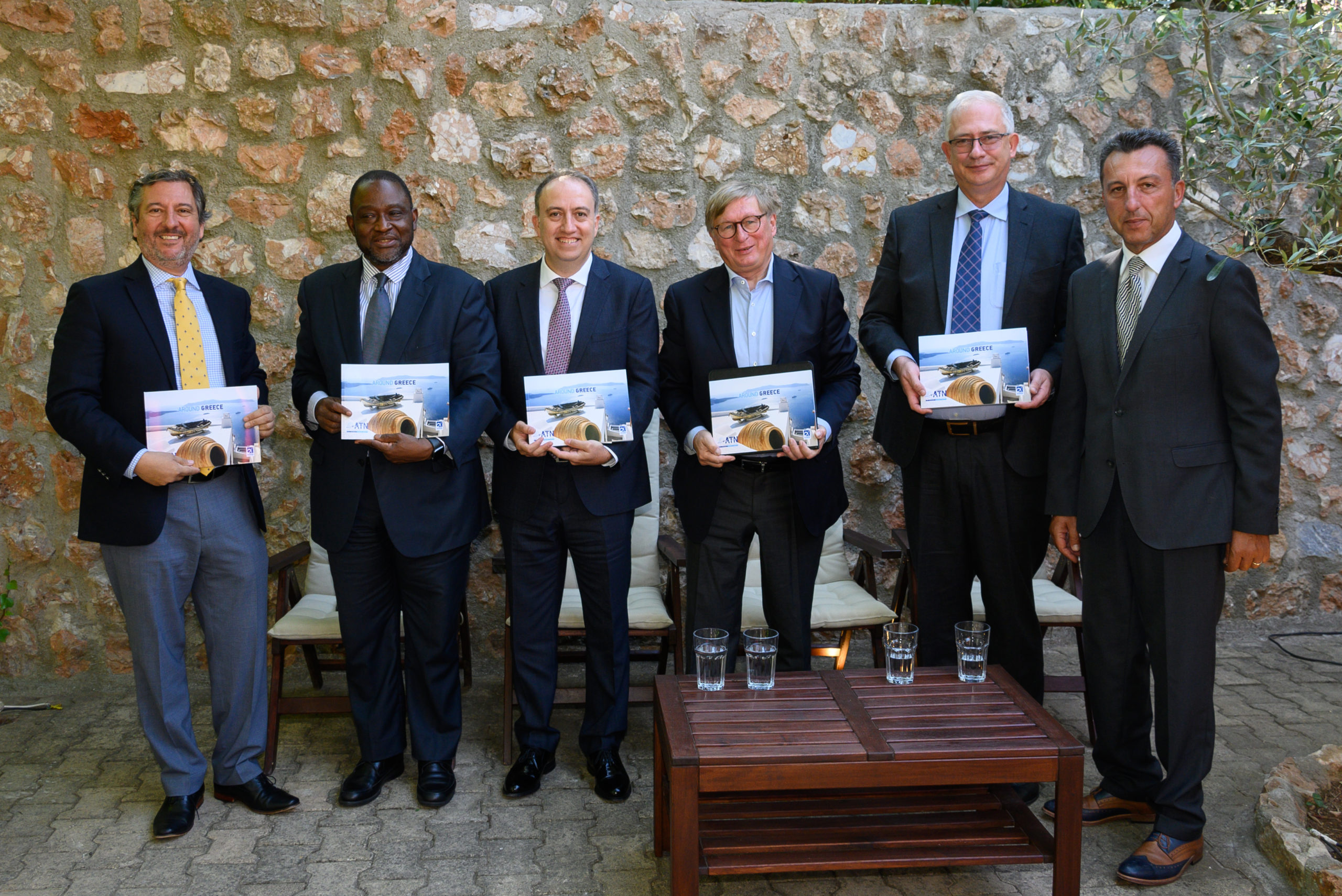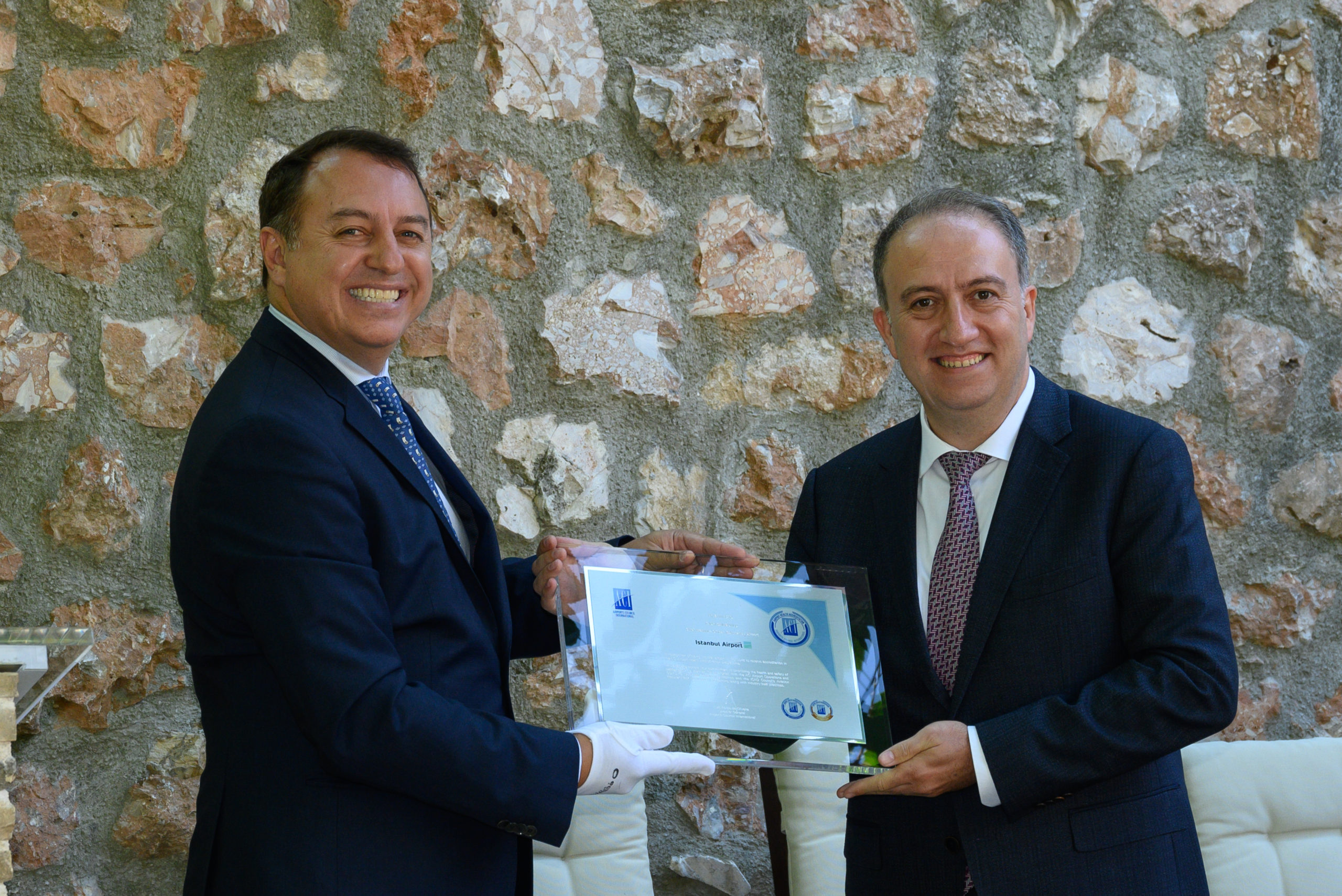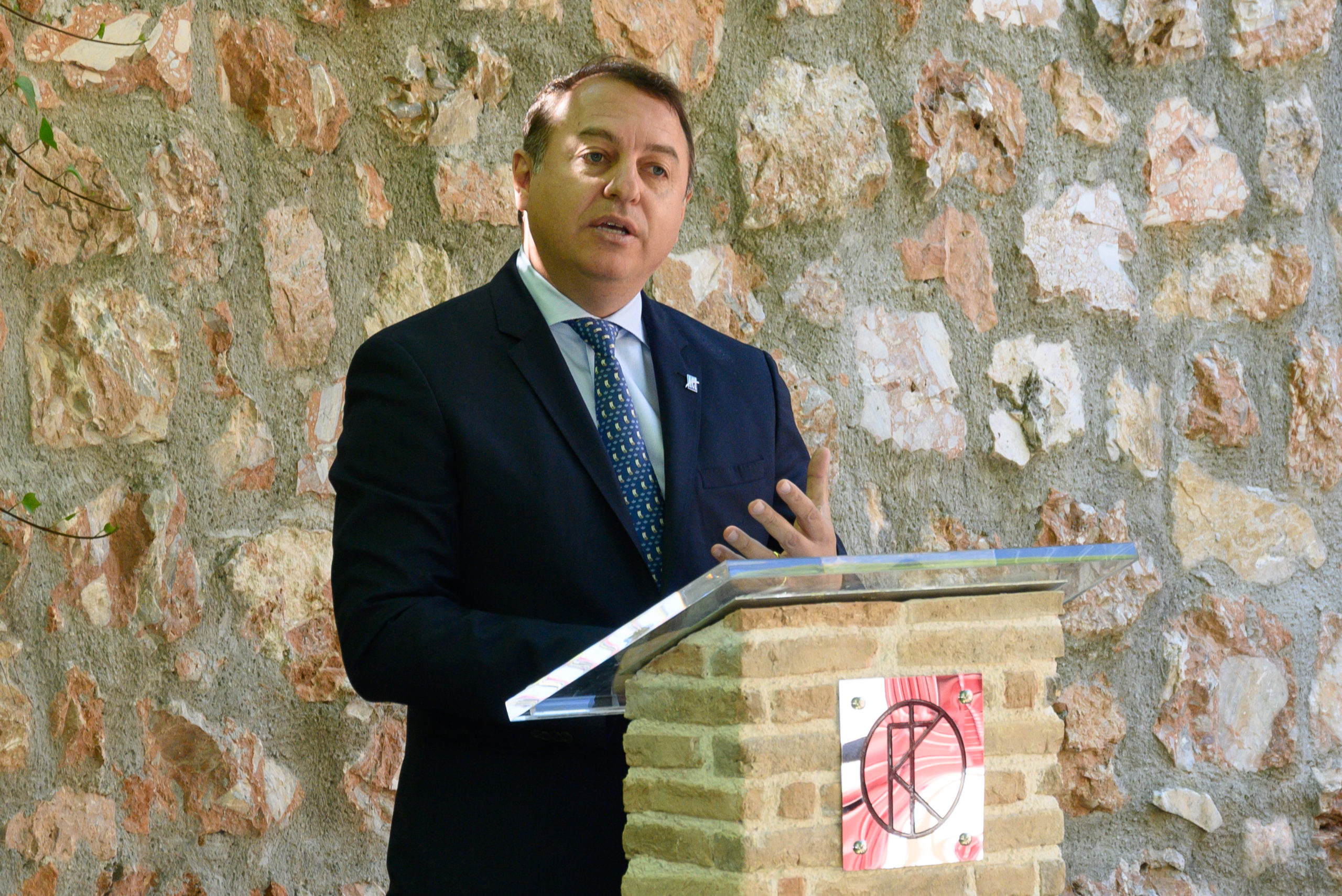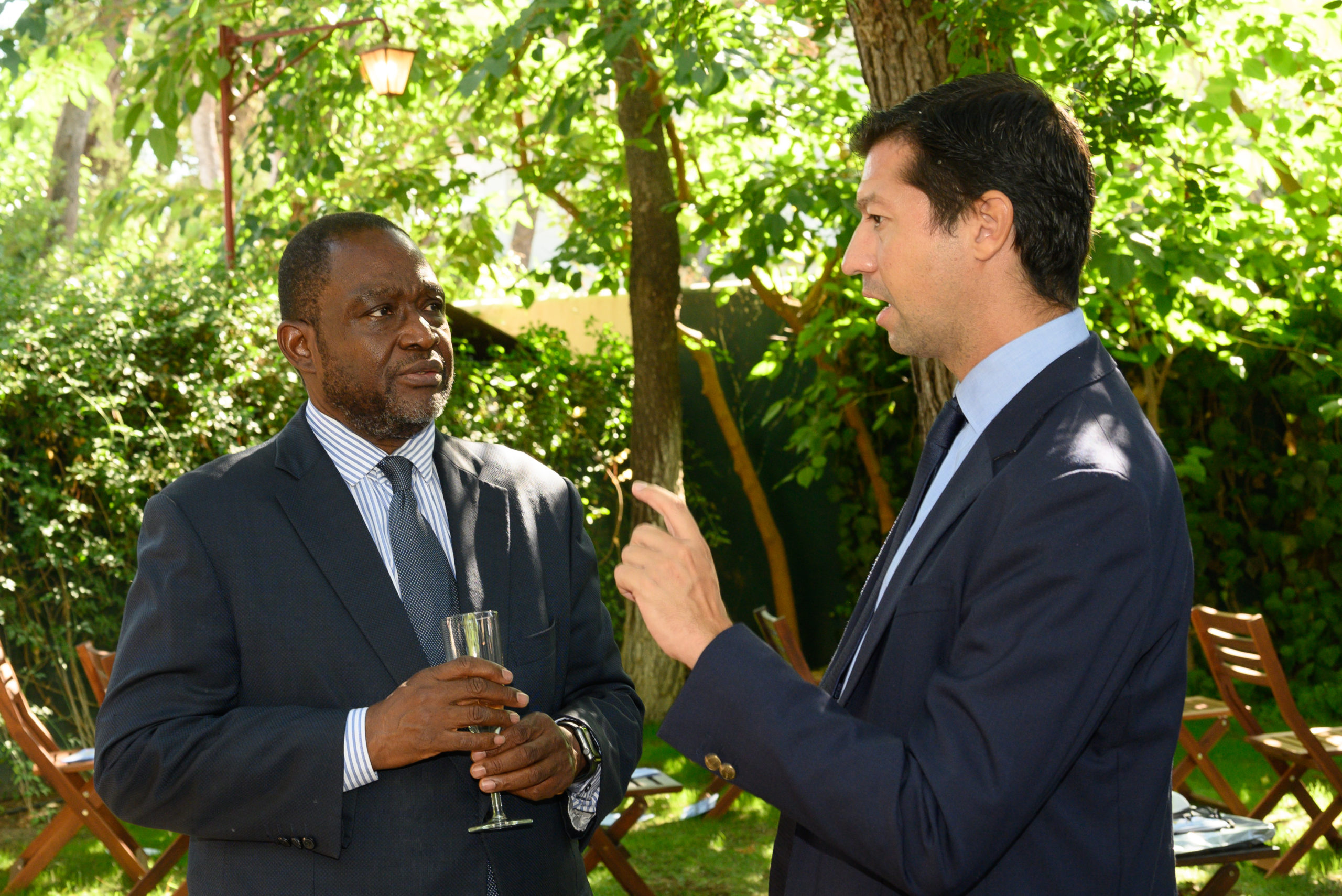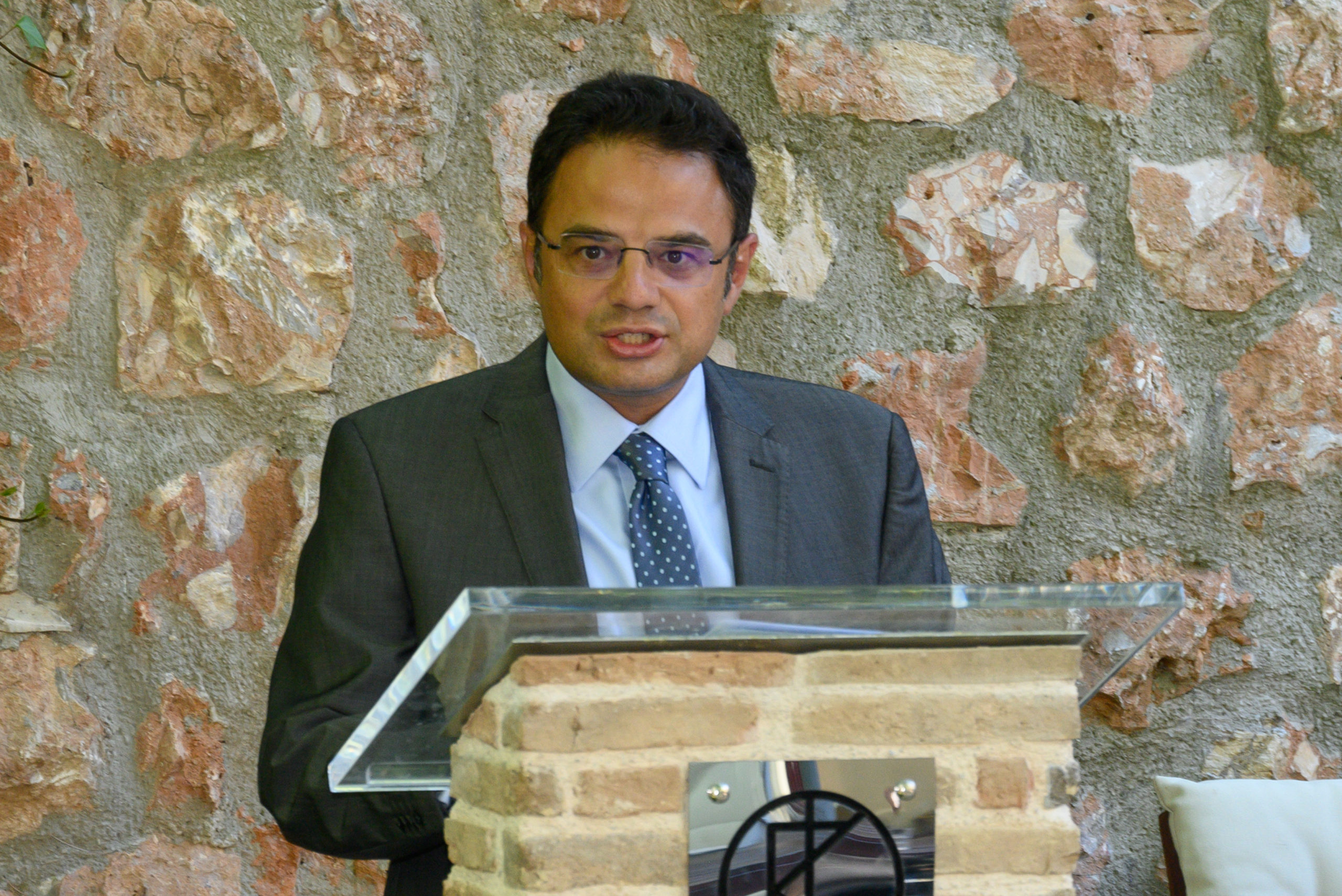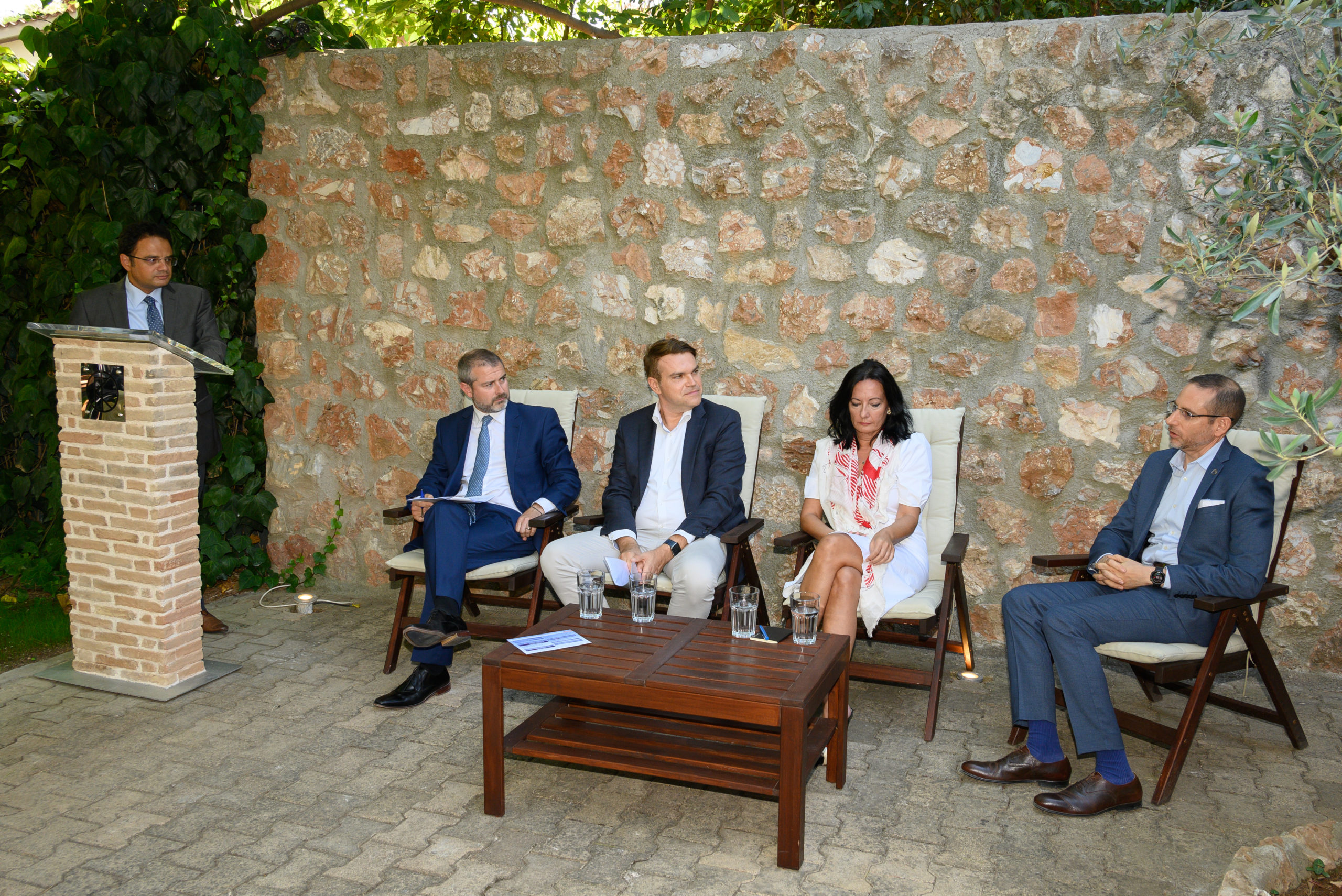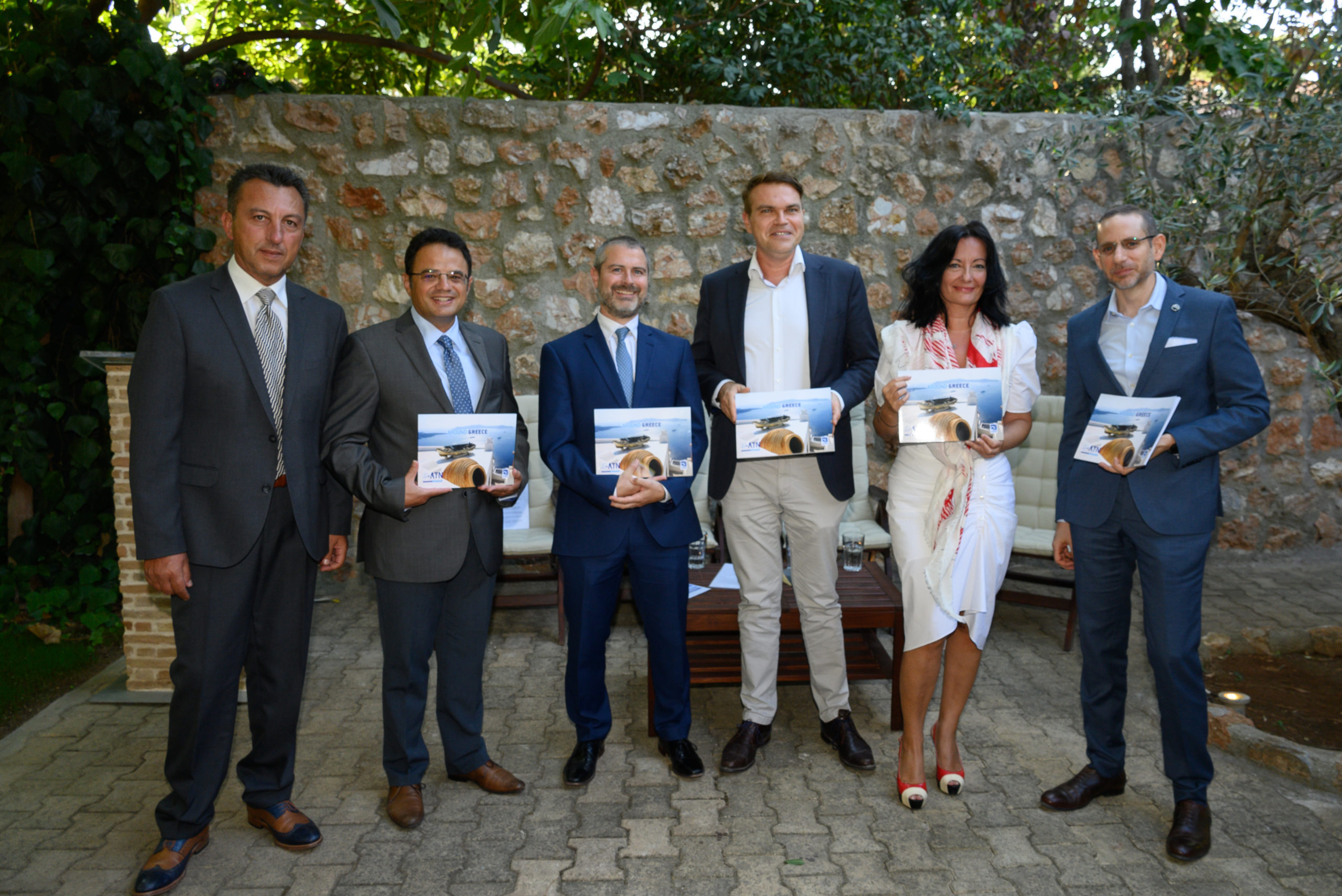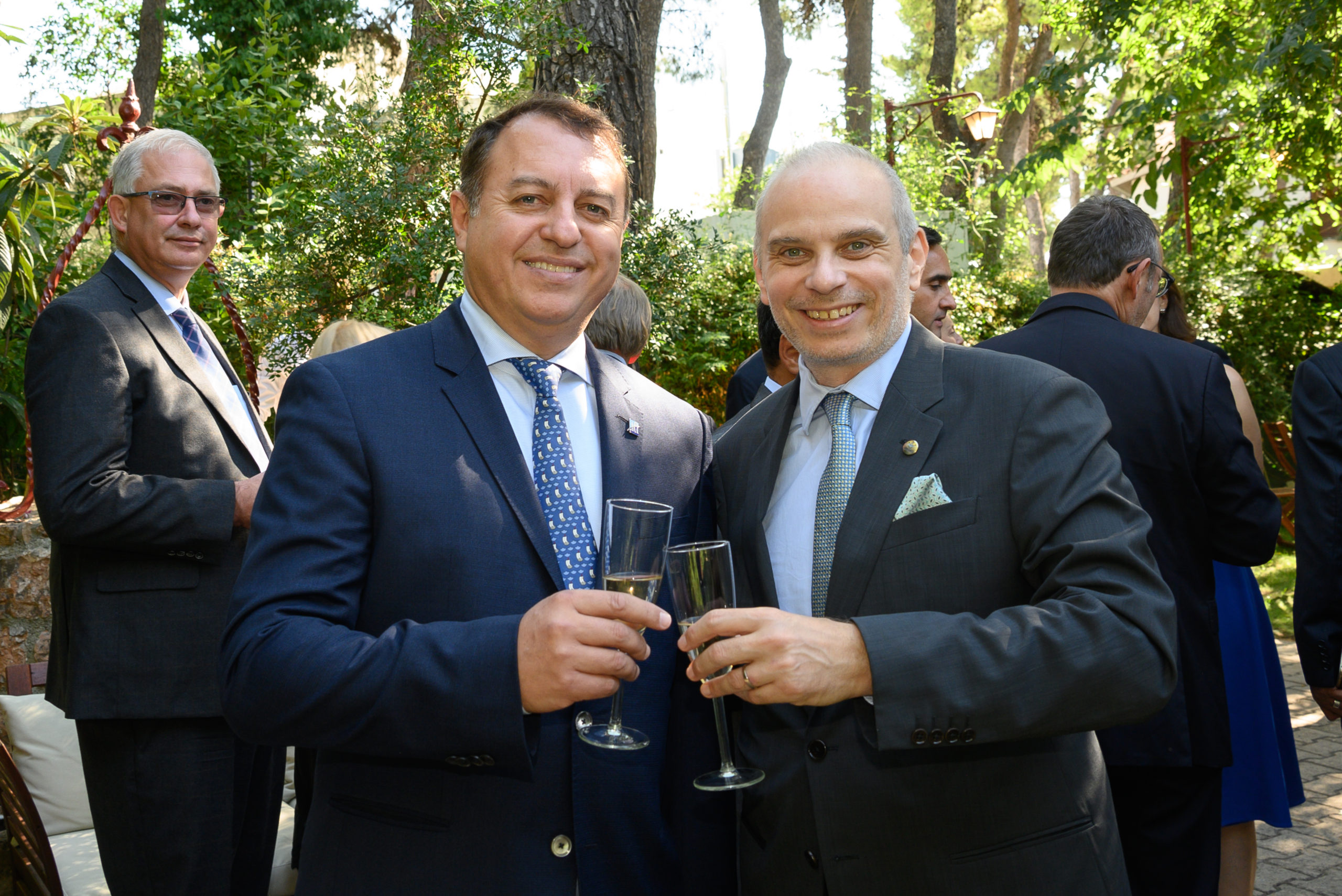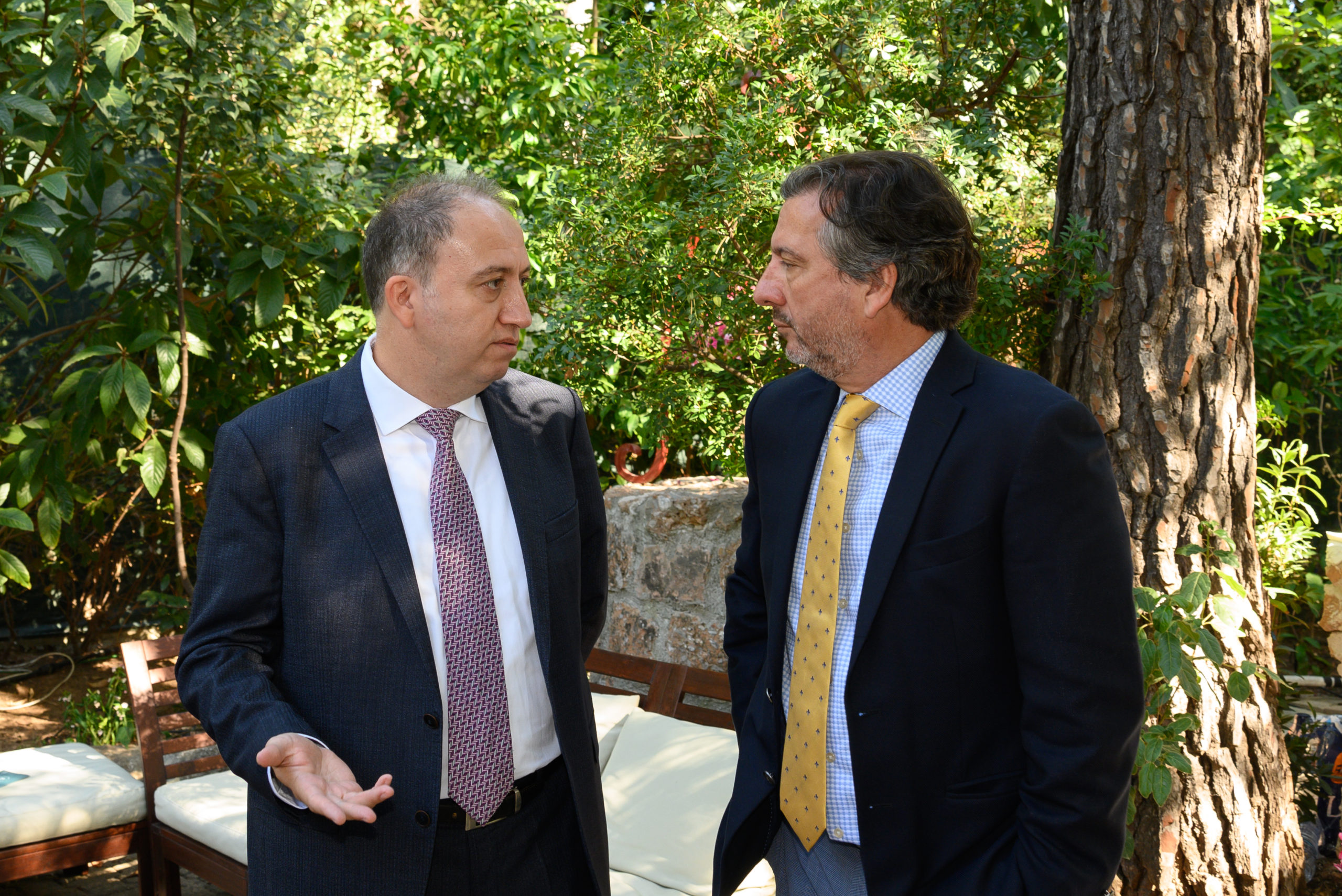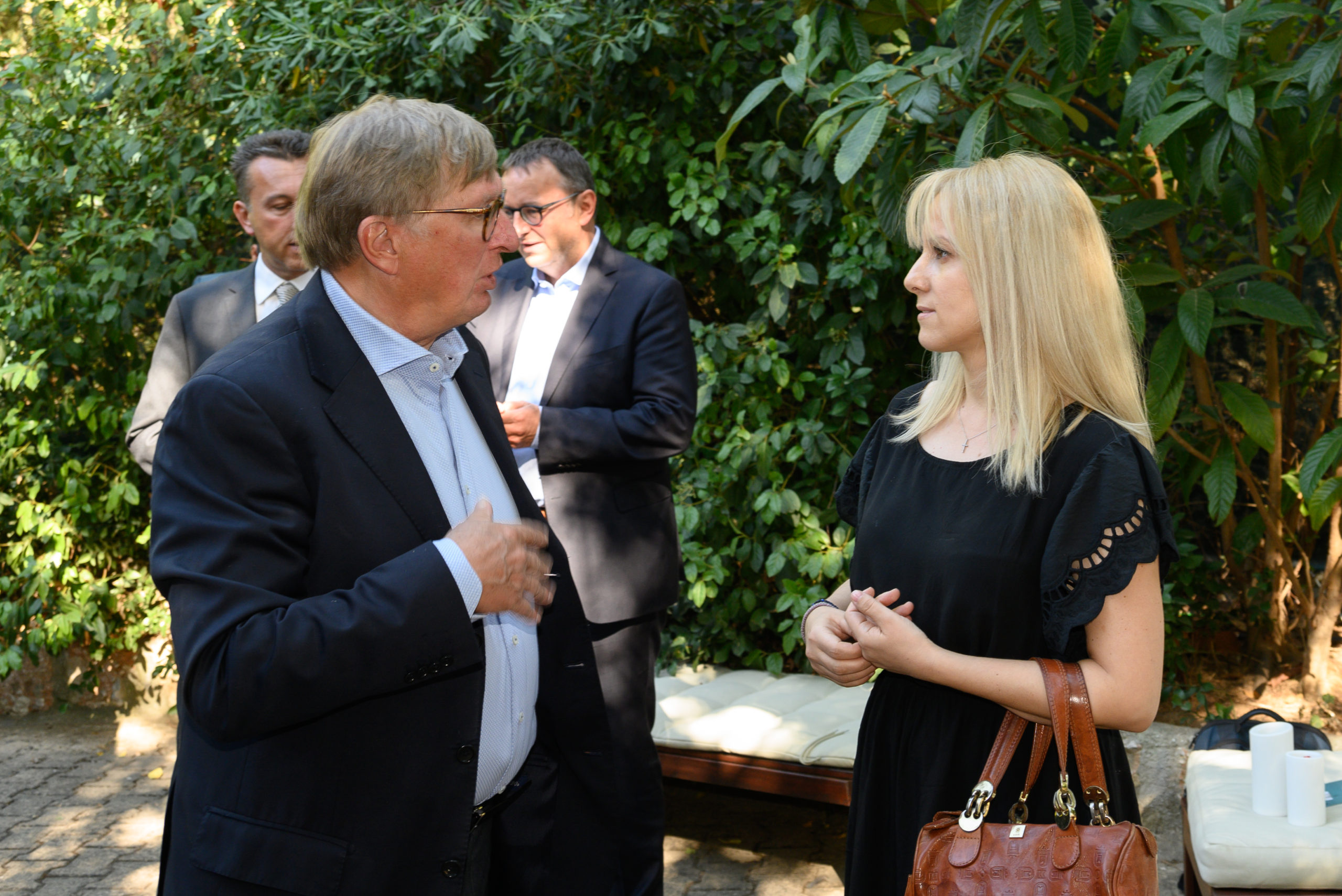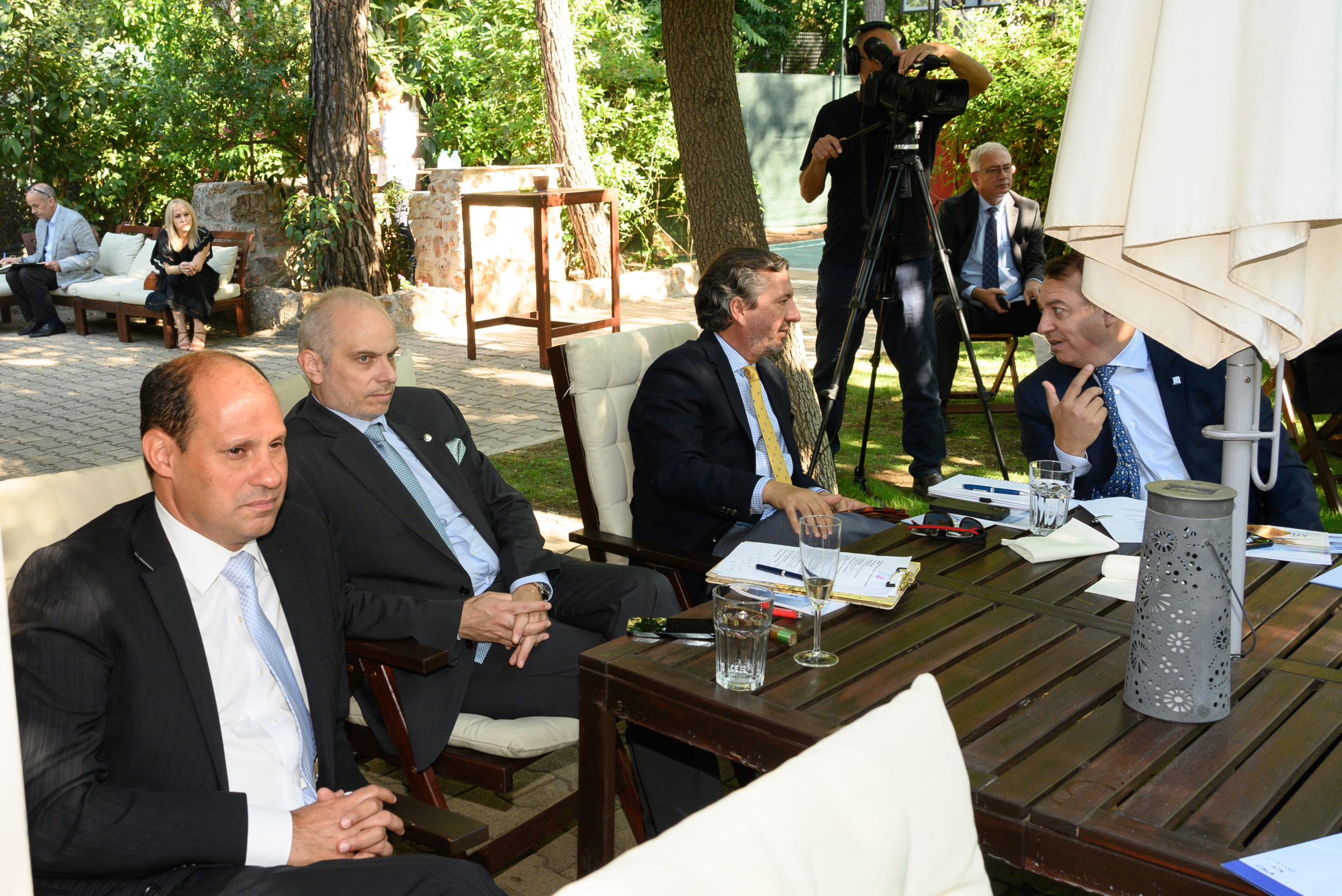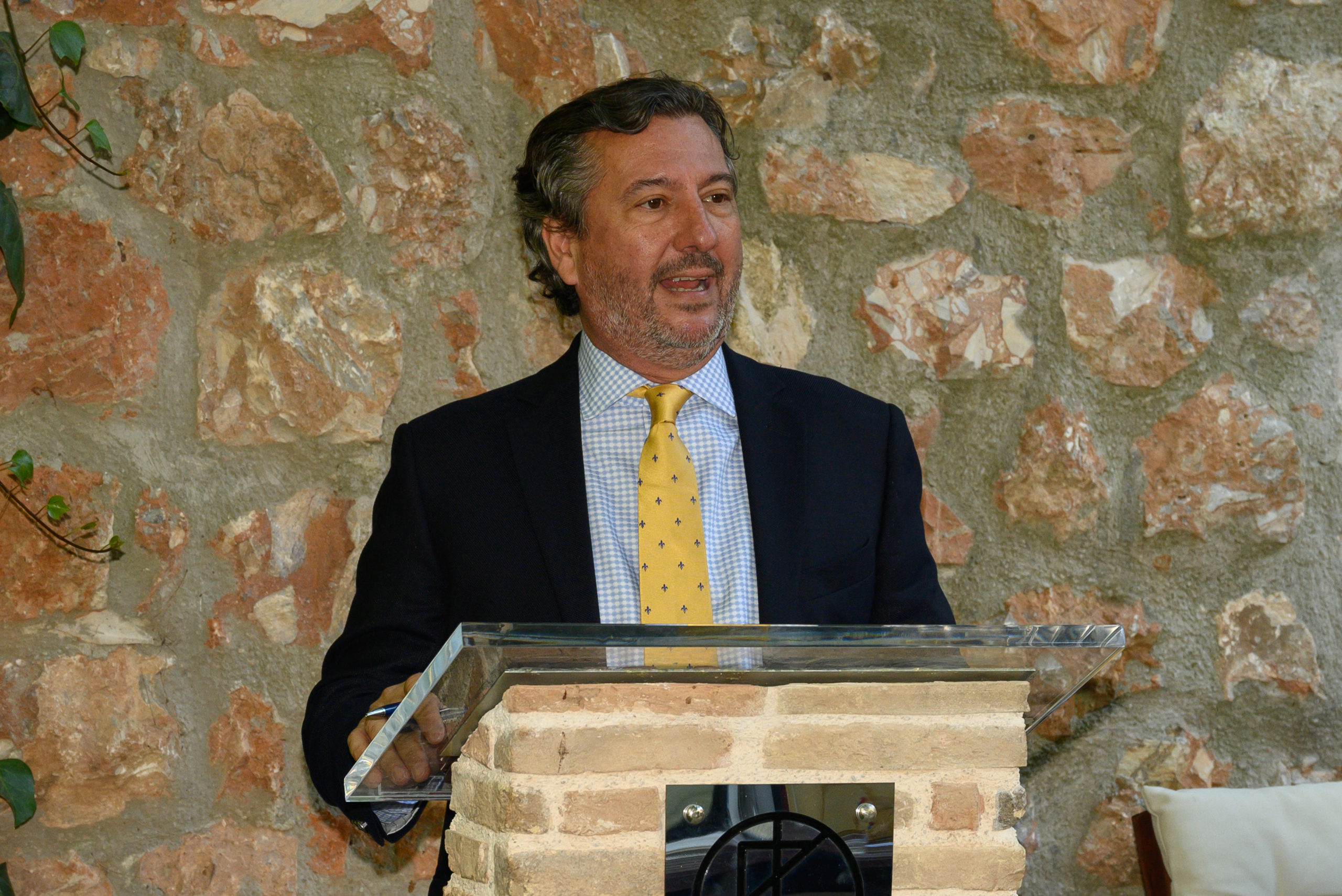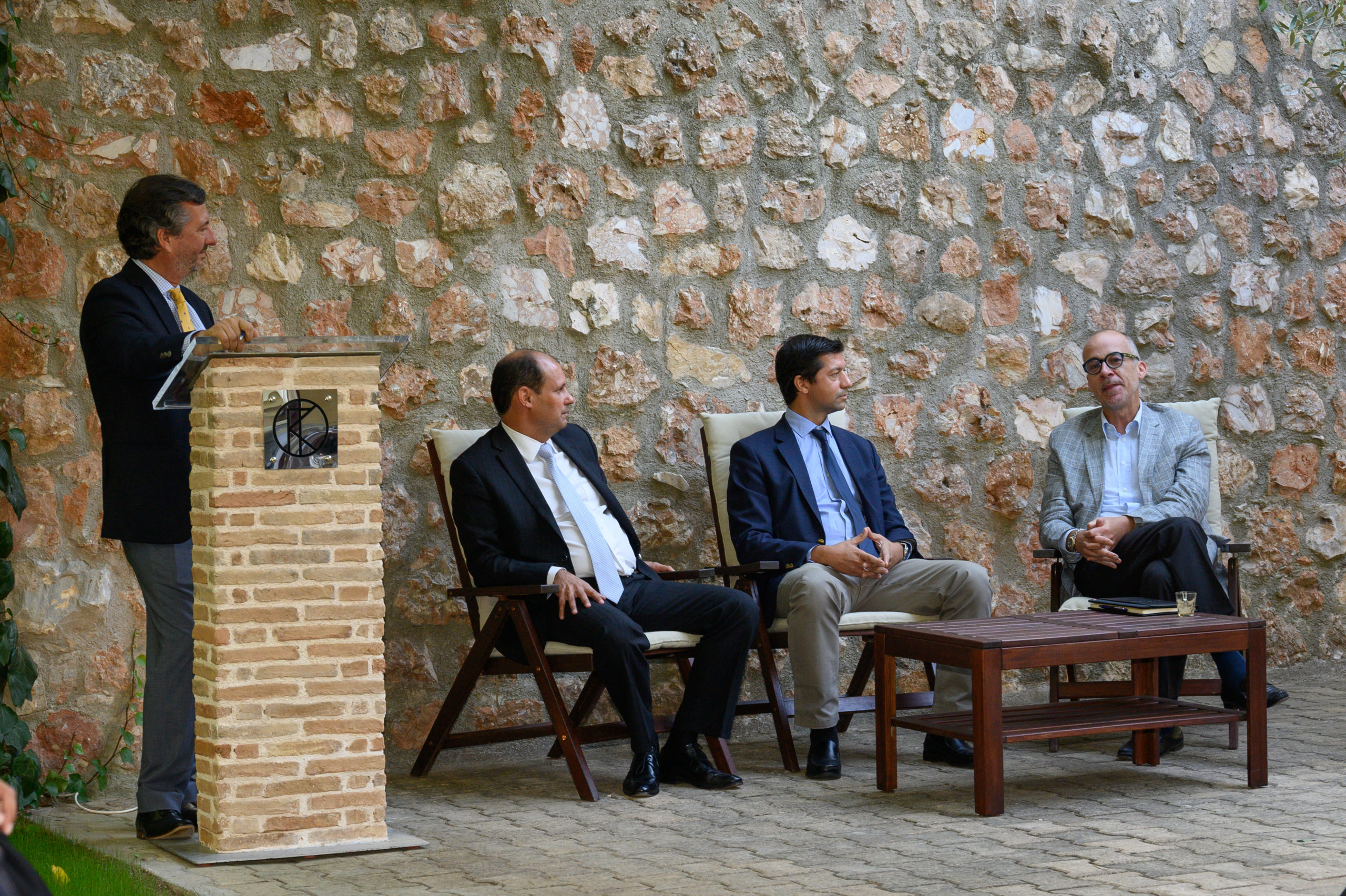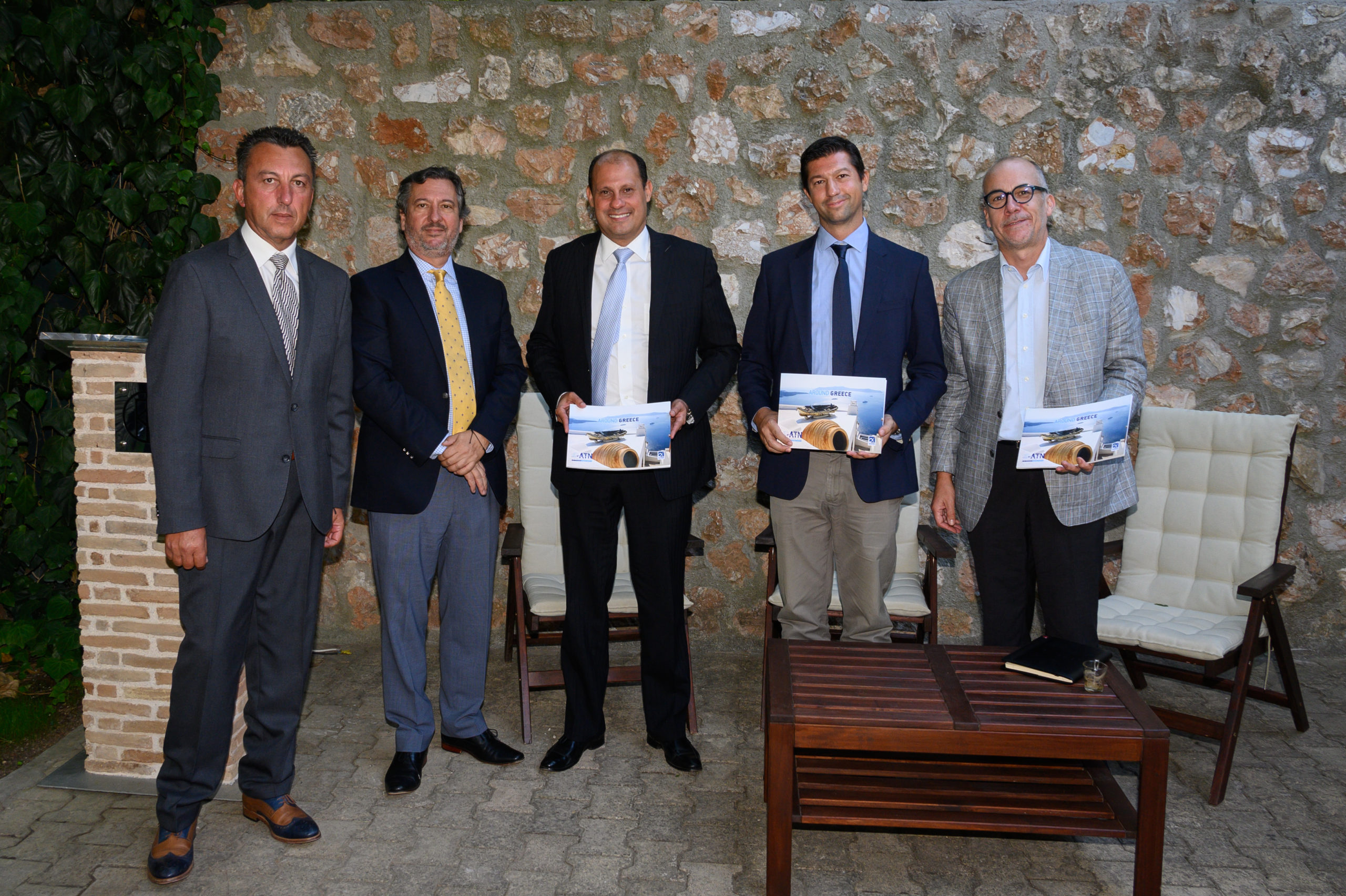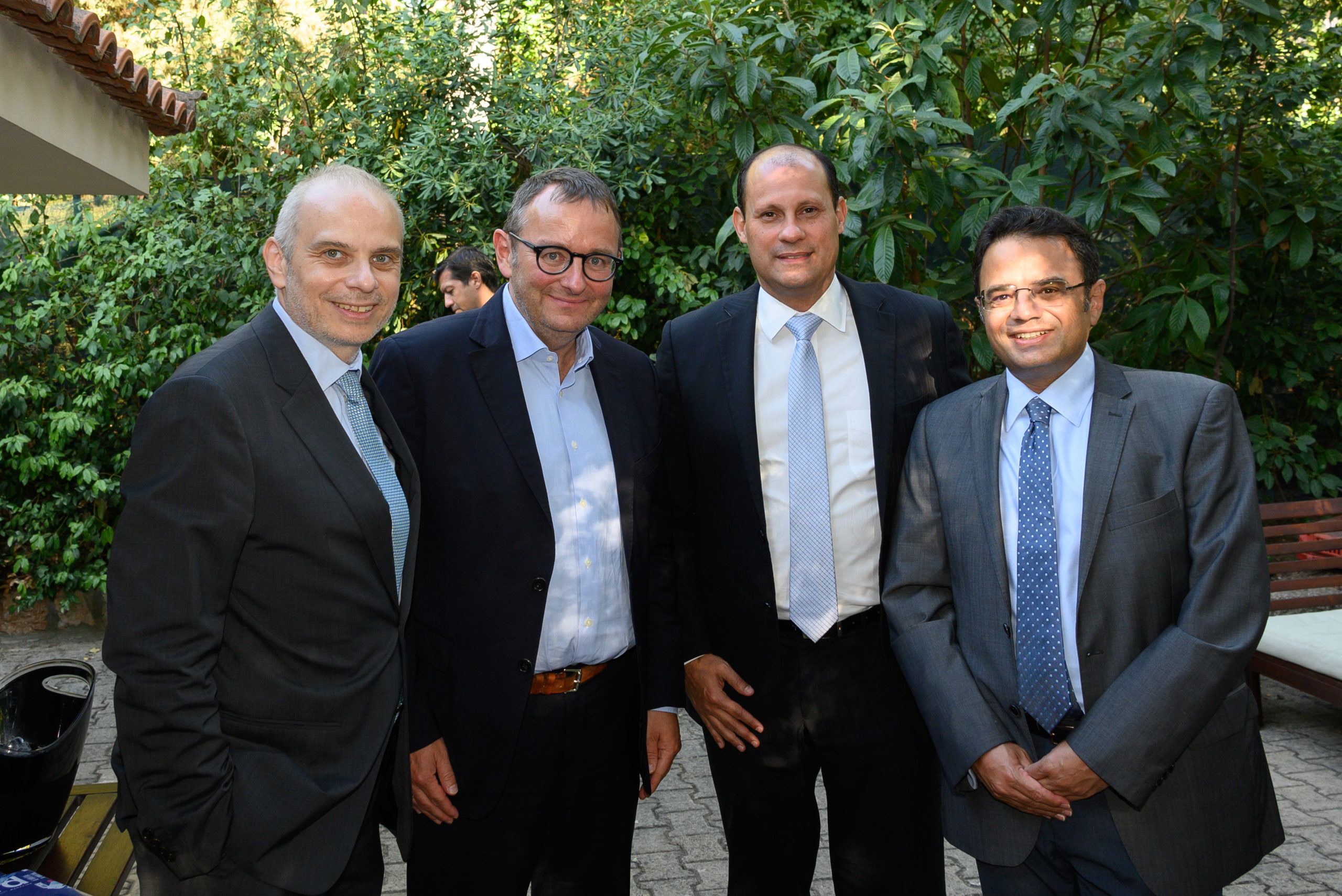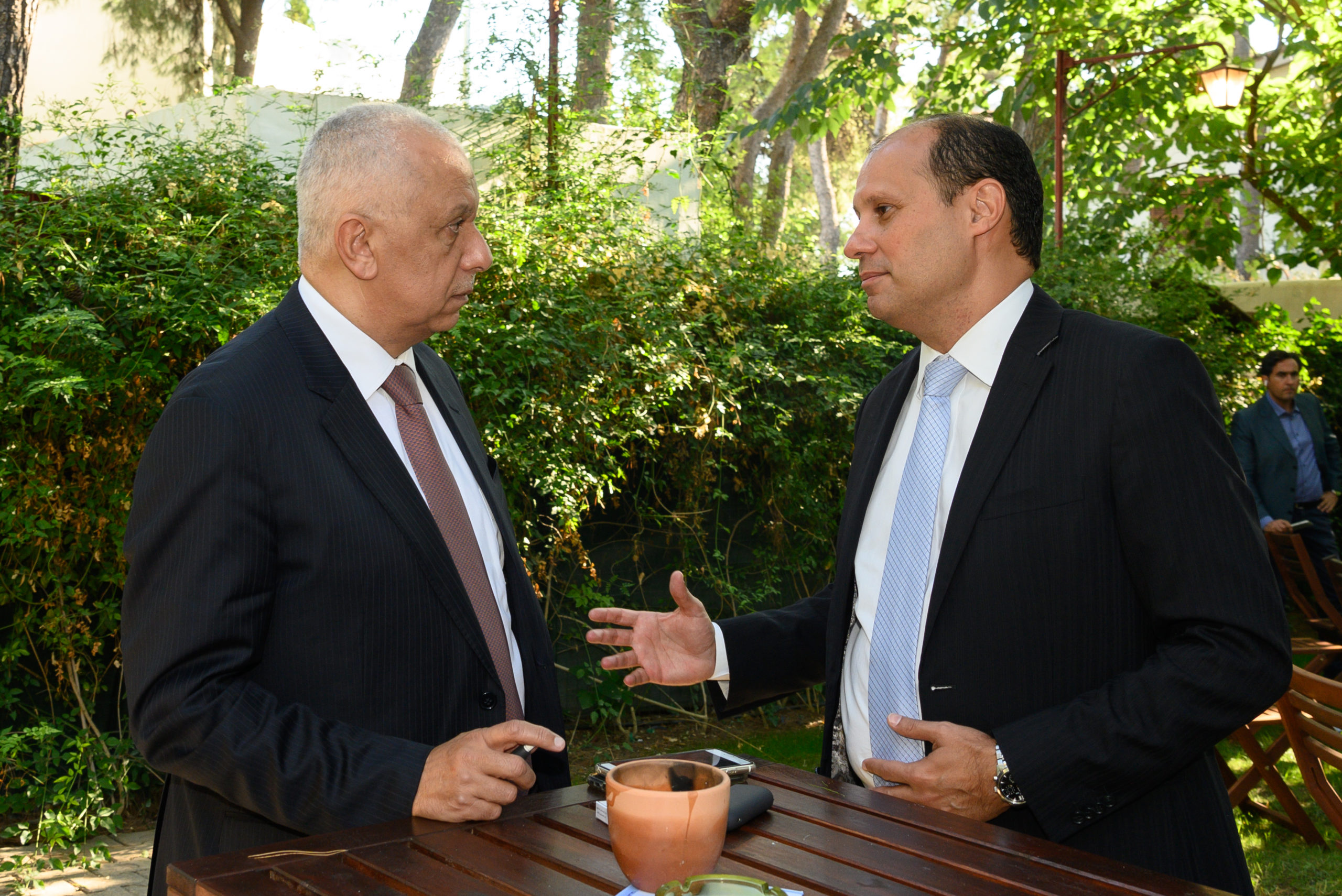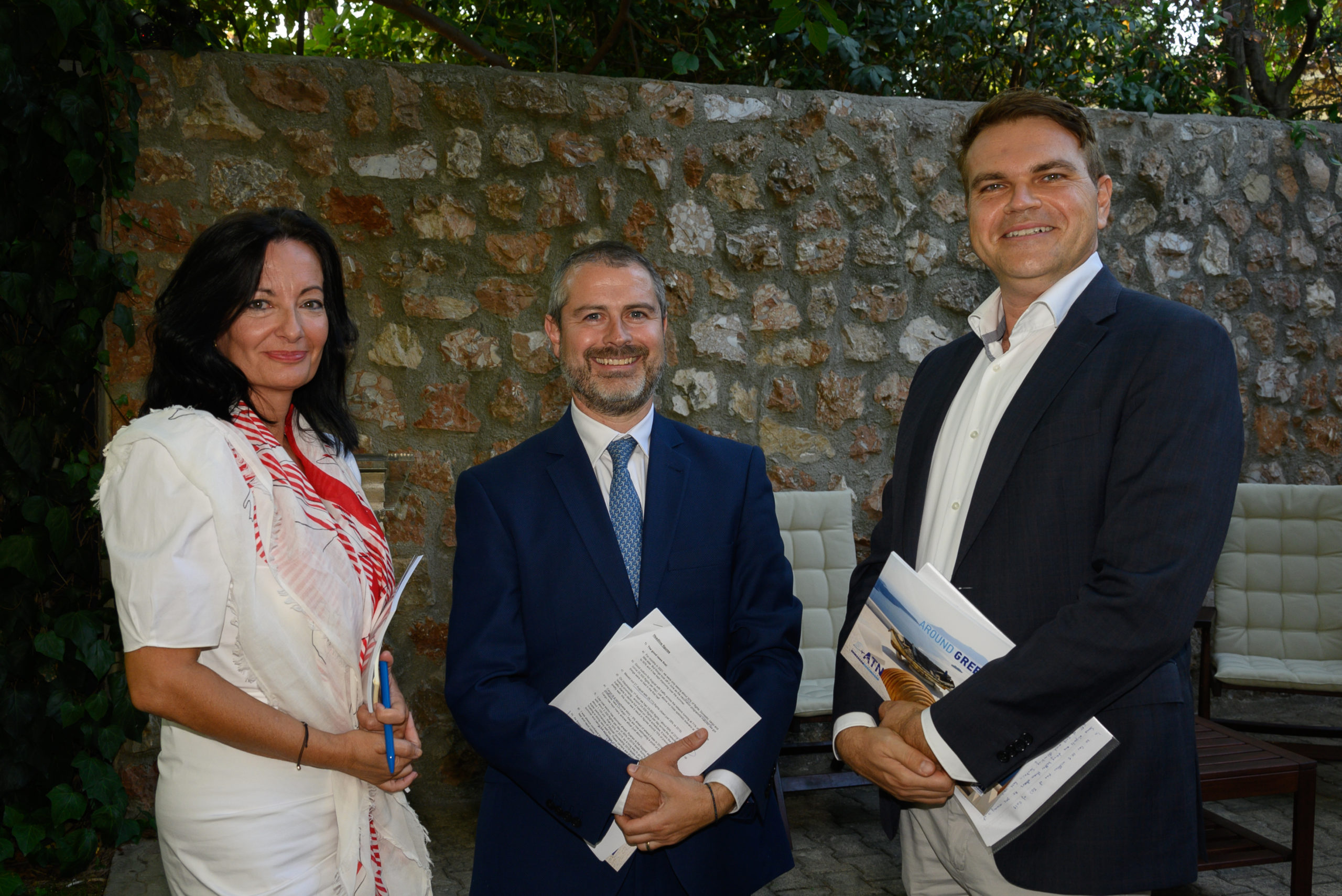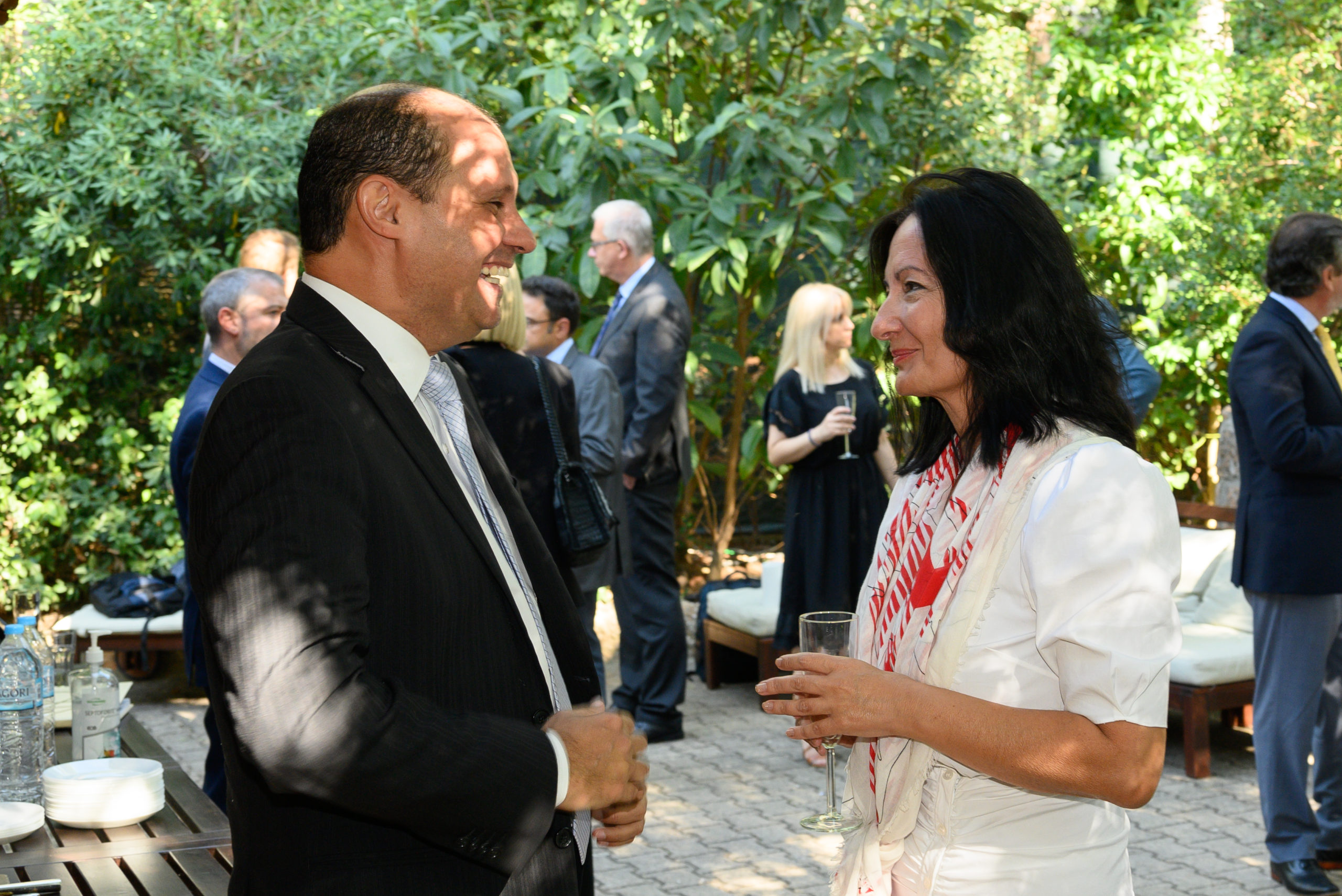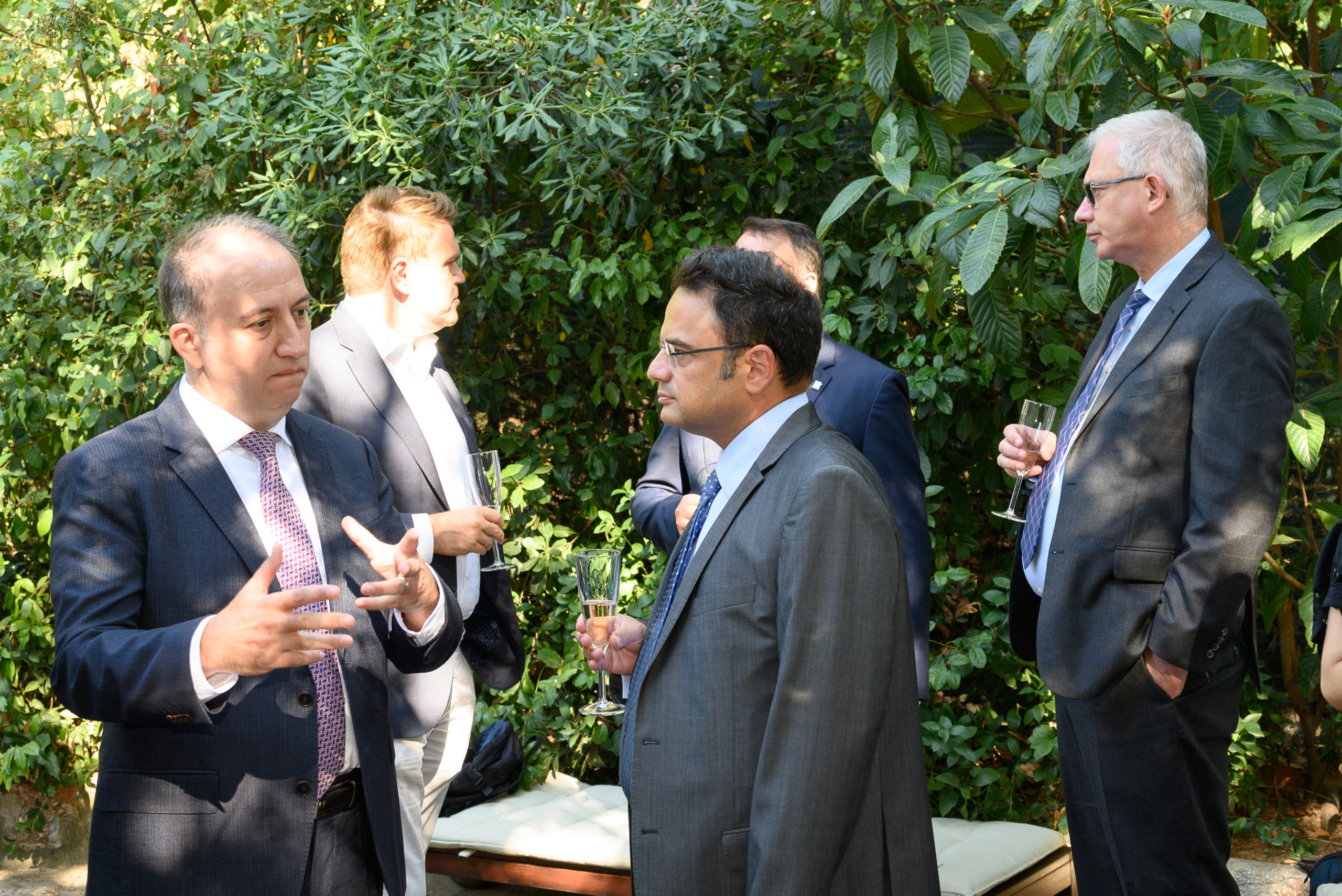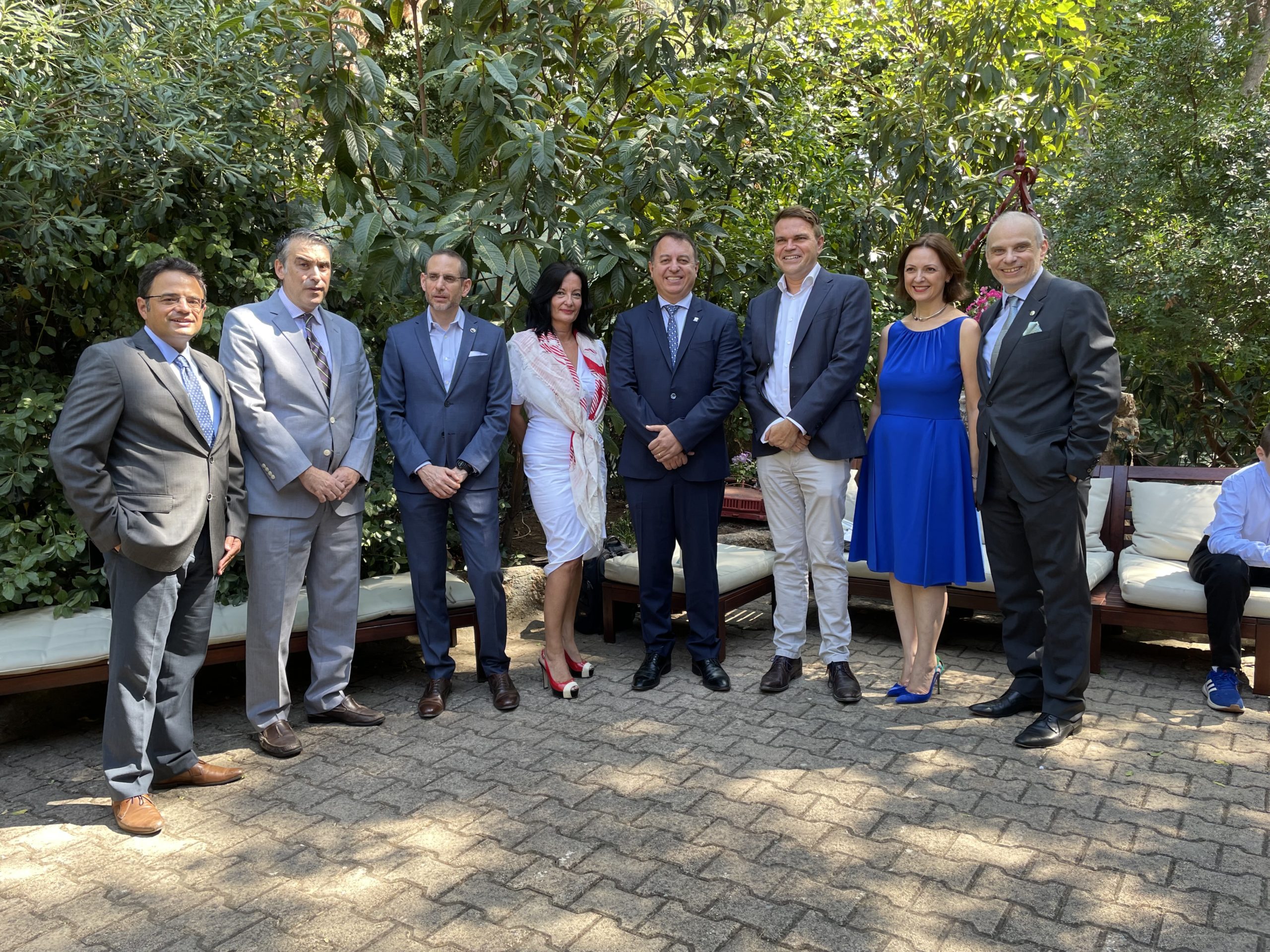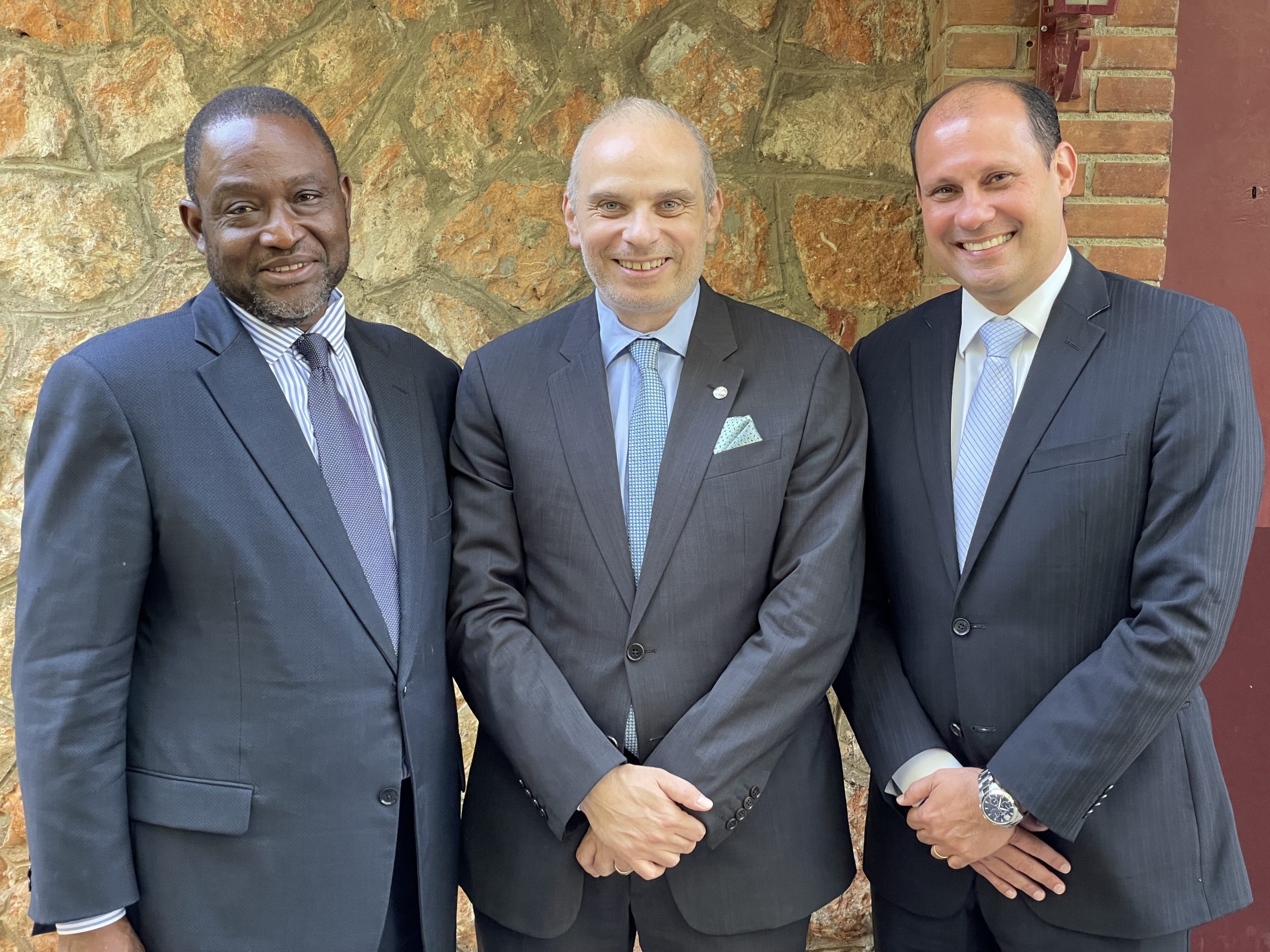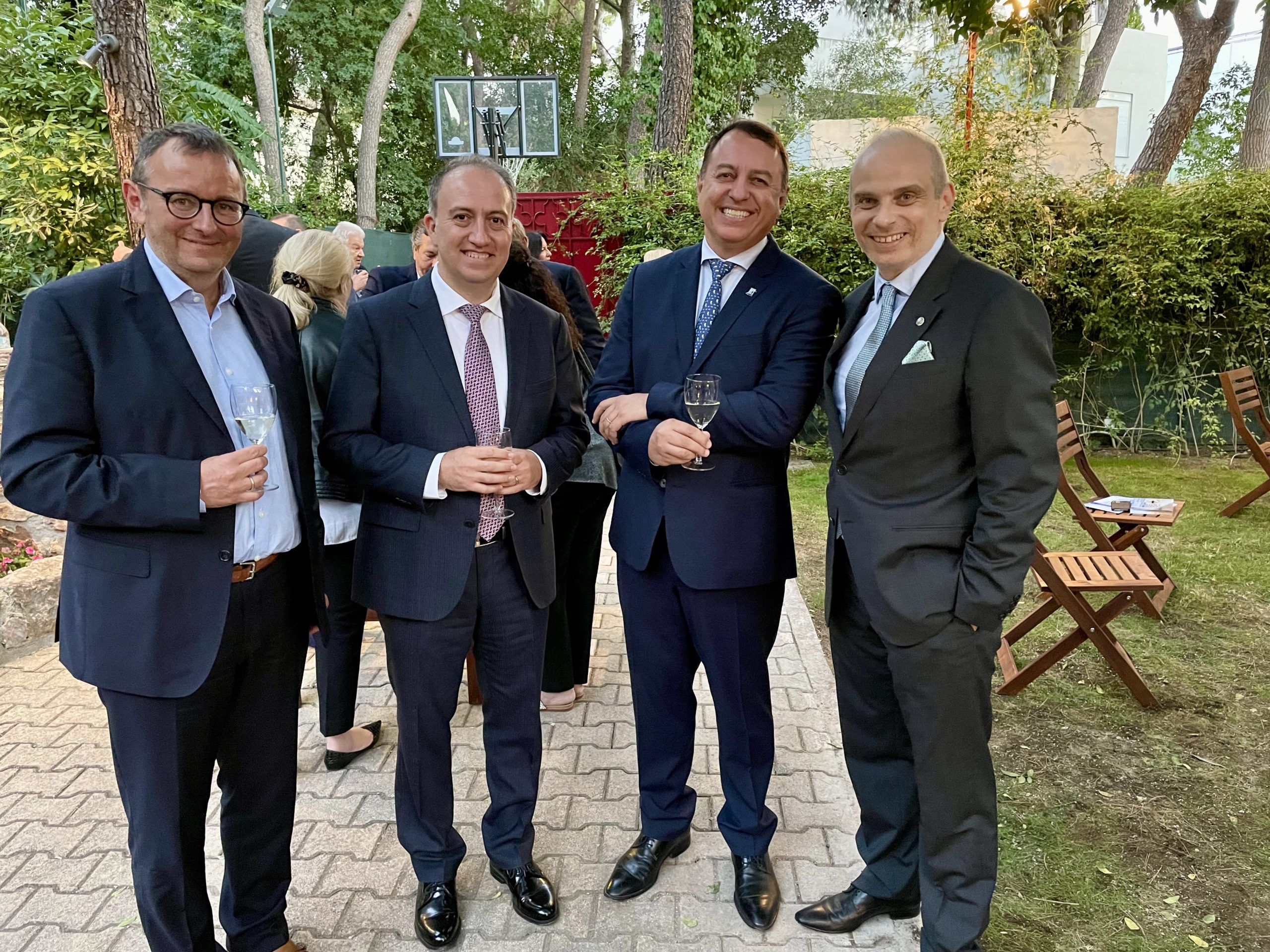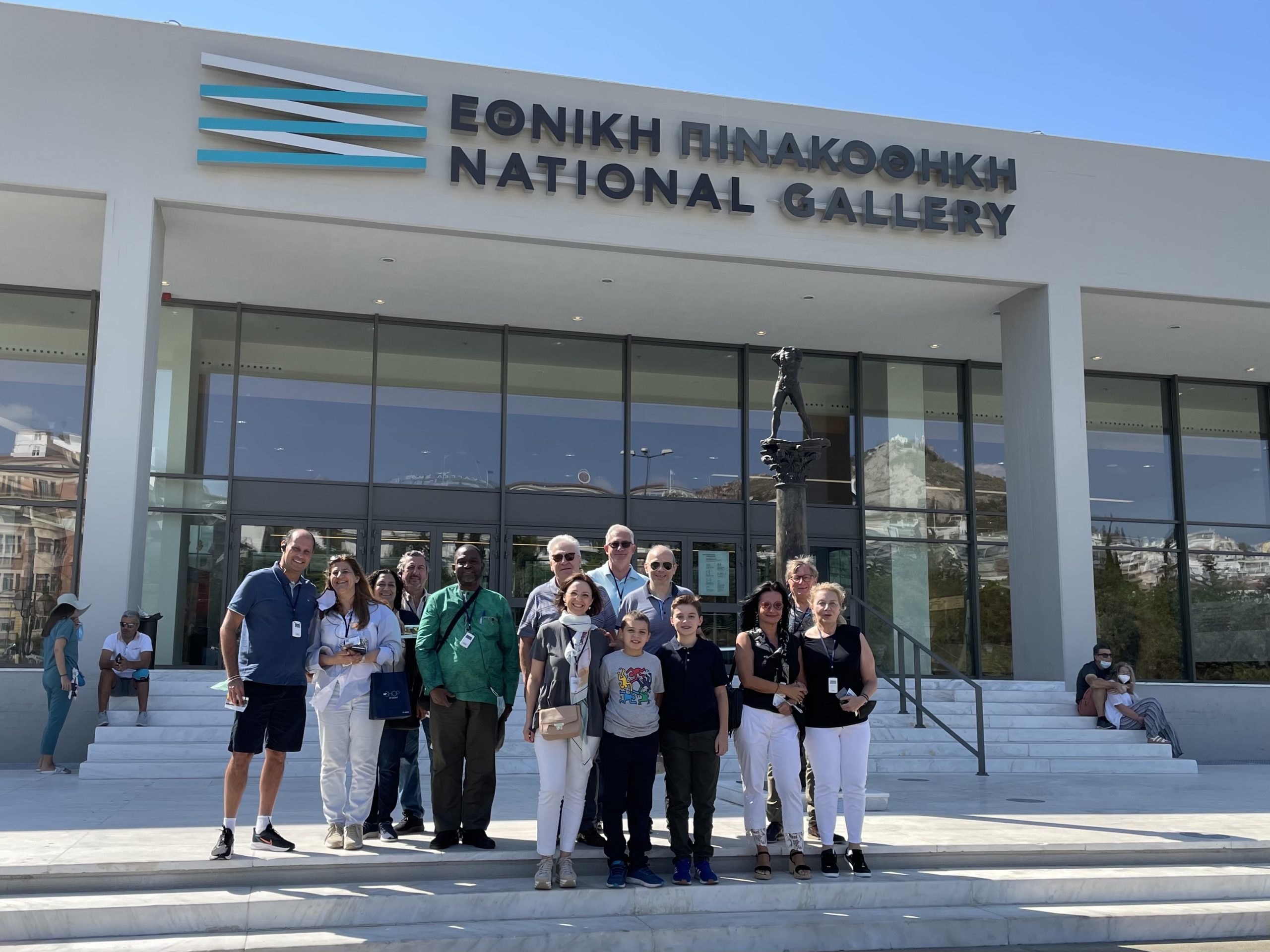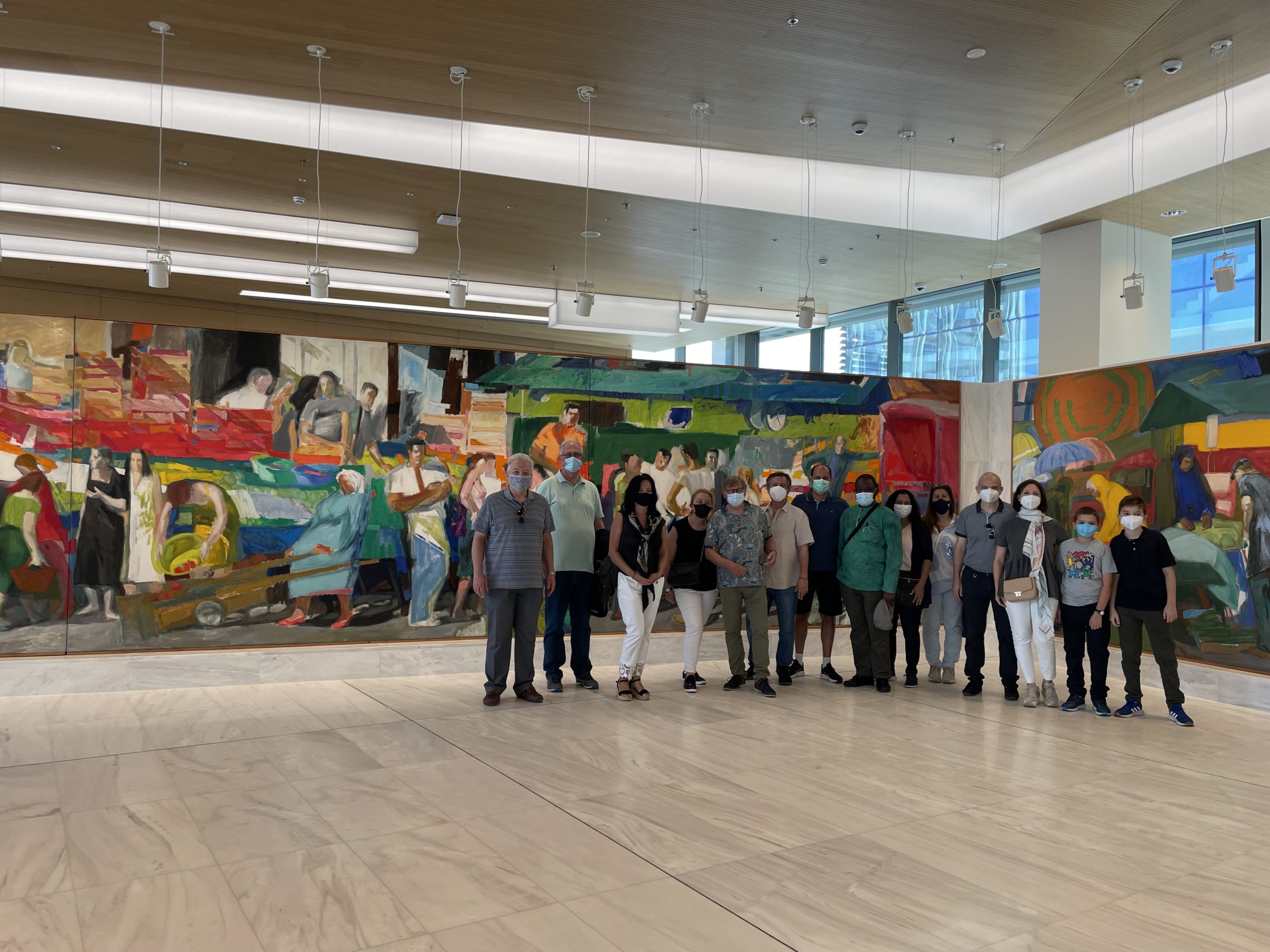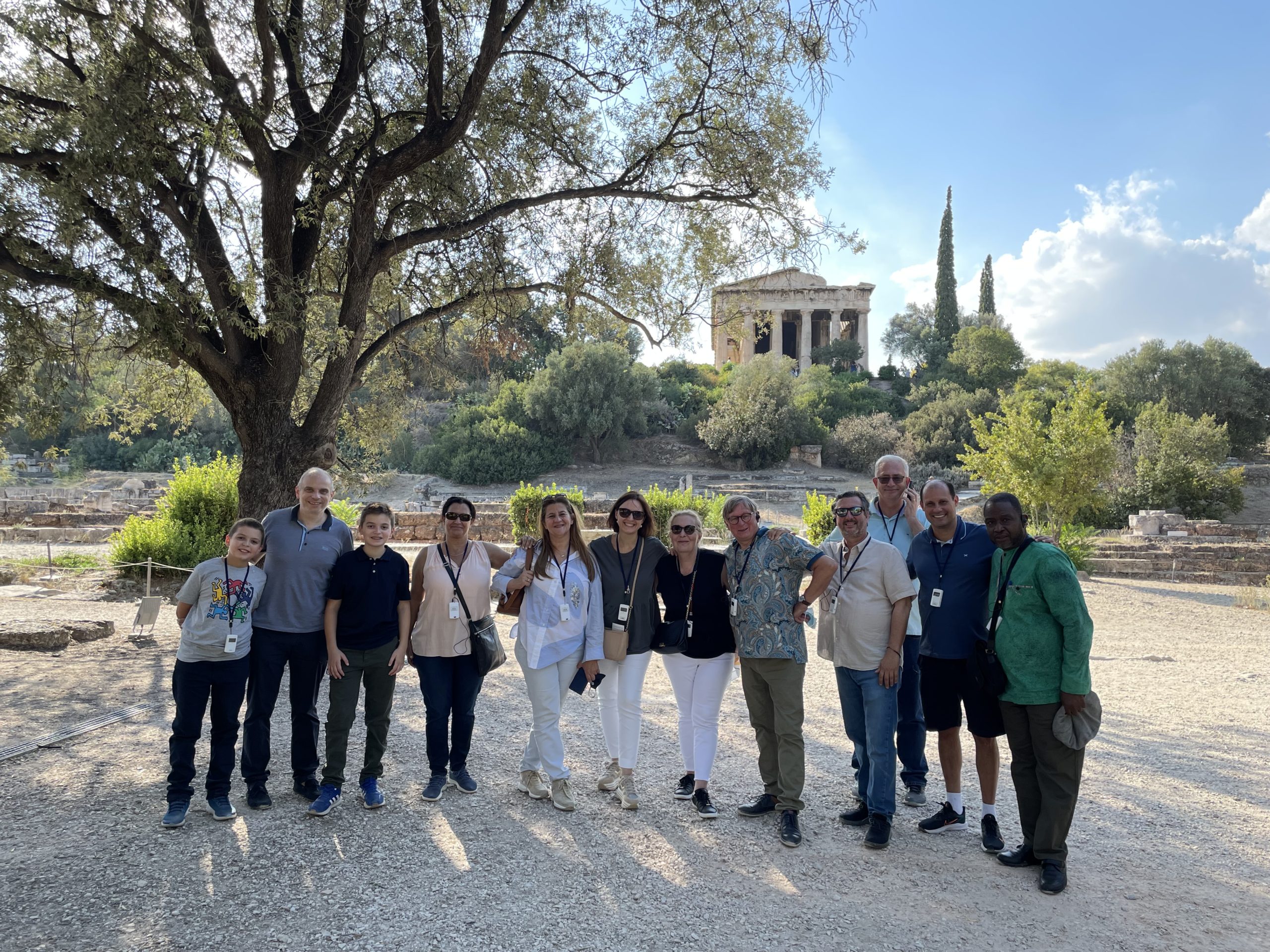
AIR TRANSPORT – A SIMPLE RECOVERY OF FUNDAMENTAL REGENERATION?
3 September 2021 Ekali – Greece
Welcome Address
Dr Kostas Iatrou, Director General, Hermes – Air Transport Organisation
Keynote Address
Juan Carlos Salazar, Secretary General, ICAO (video)
Keynote Address
Luis Felipe de Oliveira, Director General, ACI
15th Anniversary ATN – Air Transport News
ACI Airport Health Accreditation” Certificate
Session 1: Air Transport – A simple recovery or fundamental regeneration? The Leaders point of view
Session 2: Air Transport and Tourism: A New Normality?
ALA session: Implications for Latin America
Conclusions and Call for Action
Dr Kostas Iatrou, Director General, Hermes – Air Transport Organisation
For another year, ATN – Air Transport News successfully organised the Summer Aviation Forum and hosted some of the most executive members of the aviation industry. The aim of the forum was to underline the challenges as well as the future of the industry, from the leaders and tourism point of view. Also, a special session on the Latin American market was held as well. In particular, the forum consisted of:
- Dr Kostas Iatrou, Director General, Hermes – Air Transport Organisation
- Juan Carlos Salazar, Secretary General, ICAO
- Luis Felipe de Oliveira, Director General, ACI
- Alex de Gunten, SVP, HEICO
- Abderahmane Berthe, Secretary General, AFRAA
- Ismail Polat, Chief Planning Officer, iGA Istanbul Airport
- Dr David Ciceo, CEO, Aeroportul International Cluj & President, Romanian Airports Association
- Dr Michael Kerkloh, Board Member, Lufthansa Group
- Professor Andreas Papatheodorou, President, Hellenic Aviation Society
- Donal Handley Chief of Staff Director General’s Office, EUROCONTROL
- Ilias Maragakis, COO, Fraport Greece
- Ioanna Papadopoulou, Director Communications and Marketing, Athens International Airport
- Tassos Raftopoulos, Director Alliances & Aeropolitical Affairs, Aegean Airlines
- Jose Ricardo Bothelio, Executive Director & CEO, ALTA
- Nikos Sofiadis, Managing Director, Goldair Airline Services
- Jeff Peet, Managing Editor, ALA
Dr Kostas Iatrou, Director General of Hermes – Air Transport Organisation, welcomed all the participants and pointed out the importance of the vaccines for the recovery of the industry. He presented the current situation, within the air transport market but he also highlighted the new industry trends, and needs, which occurred due to the global health crisis.
The newly elected Secretary General of ICAO, Juan Carlos Salazar, provided a highly encouraging and insightful speech. The event’s first keynote speaker highlighted the great impact of Covid-19 in the aviation industry and its results on the domestic and international traffic. He expressed his belief that vaccinations are the key for the stable recovery of the industry as well as that air transport sector plays an important role on the supply chain and its recovery will positively affect other parts of the global economy. Moreover, Juan Carlos Salazar pointed out the several challenges which the industry faces by implementing the CART guidelines. Through CART suggested procedures, establishment of harmonisation processes and rapid coordination the industry will be able to recover from the COVID-19 pandemic. In particular, he presented the VDS example which relates to a common database of health documentation for better and safer travels. In the last section of his speech, the Secretary General presented the future challenges of the industry as well as several actions for the future recovery. He identified the need for future risk management strategies, the urgent need for coordination with all authorities as well as the strong opportunities of the digitalisation of the aviation sector. Lastly, he reminded of the industry’s commitment to invest in order to meet sustainability and decarbonisation challenges of the sector.
As the second keynote speaker of the forum, Luis Felipe de Oliveira, Director General of ACI expressed his optimism regarding the signs of recovery in the industry. He pointed out that vaccinations are vital, however there are still several obstacles in the distribution procedures. Moreover, he highlighted several aspects which need to improve in the air transport sector. The acceptance of vaccines as well as the difficult travel procedures identified as the main issues now. Moreover, Luis Felipe de Oliveira highlighted the vital assistance of the CART guidelines and their fast adoption, as well as their implementation, by the majority of the airports. He presented the strong impact of the airport industry, on the social and economic development, as well as the need to “build back better” regarding the future expansion of airports. Last but now least, he referred to the future challenges of the airport sector. He identified sustainability, net zero-carbon emissions as well as collaboration among stakeholders as the main targets for a viable future.
The forum continued with the ceremony for the 15th Anniversary of ATN – Air Transport News in which Dr Kostas Iatrou, founder of ATN, thanked all the partners, as well as individuals, for their support and especially Athens International Airport by providing with a plaque for their cooperation.
Luis Felipe de Oliveira, Director General of ACI highlighted the importance of the implementation of harmonised procedures, within the industry, in order to adopt to the new normality, achieve optimal passenger experience and ensure health safety measures. In this context, he presented the ACI Airport Health Accreditation Certificate which for the second year was awarded to the iGA Istanbul Airport; the respective plaque was accepted by Ismail Polat, Chief Planning Officer of iGA Istanbul Airport.
The first session of the forum was hosted by Alex de Gunten, Senior Vice President of HEICO, who warmly welcomed the panel and introduced briefly the current situation in the aviation industry. He expressed his concerns over the constraints faced by the industry and highlighted that the industry is ready for a structural change.
By opening the discussion, Dr Michael Kerkloh, Board Member of Lufthansa Group identified that the industry has accelerated rapidly, especially in the last 6 months. He expressed his relief regarding the survival of the airports, as well as the small number of airline bankruptcies, during the pandemic and said that many airlines are saved by their governments. He also witnessed a small number of consolidation and surprisingly the initiation of several new airlines, around the world. Moreover, Dr Michael Kerkloh underlined the fact that at present, airlines need to face the challenge of Covid-19 restrictions on their network planning. He added that the industry needs to have a common basis which will provide the same message to all stakeholders, give the ability for information sharing, technological advancements as well as a common platform for everyone. Moreover, he acknowledged the fact that in the future there will be airport terminal constraints, and this is an issue that needs to be taken seriously into consideration.
Abderahmane Berthe, Secretary General of AFRAA presented the significant impact of the Covid-19 pandemic in the African aviation market. He identified several elements as major factors which prevent the industry from recovering faster:
- Travel Restrictions within the region
- Different travel requirements add complexity
- Limited financial aid by the governments
- Low levels of vaccinations among the continent
- Decrease of connectivity
However, he added that he is optimistic for the future of the African aviation market as due to the health crisis the region faced a great surge of cargo operations. This initiated the dialogue between stakeholders, which reflects to a promising future for African aviation. Secretary General of AFRAA identified the health authorities as a great obstacle to the streamlining of air transport operations as they continuously establish restrictions. To avoid this situation, Abderahmane Berthe suggested the establishment of National Committees with the participation of all parties in the decision making process. Finally, he stated the fact that PCR tests are the main weapon for the African aviation market to continue its operations until the vaccination levels finally reached.
The CEO of Aeroportul International Cluj & President of Romanian Airports Association, Dr David Ciceo, focused mostly on the Romanian aviation market. He identified that larger Romanian airports suffered greater losses, than the smaller ones, however there was a governmental aid to continue their operations. He added that Romanian airlines, TAROM and Blue Air received also state aid while at the same time the market was characterized by the presence of a significant number of Low Cost Carriers. During the summer months the major Romanian airports projected promising results, a fact that makes Dr David Ciceo optimistic about the future.
Ismail Polat, Chief Planning Officer of iGA Istanbul Airport explained that the Covid-19 pandemic created a challenging environment for an airport of that size. He identified that all newly adaptive techniques, such as digitalization, were essential for the viability of the airport while they offered a great level of flexibility. Moreover, Ismail Polat acknowledged that Istanbul Airport could not manage to establish all the necessary procedures without the cooperation and coordination with other aviation and governmental stakeholders. He also highlighted the concept of a harmonized aviation system which will create opportunities to share information, experiences, solutions, and strategies as this will establish the basis for cooperation among all aviation parties. Finally, he identified all the necessary actions for airports to preserve their high security and safety levels for the future.
During the second session, Professor Andreas Papatheodorou, President of Hellenic Aviation Society, coordinated a highly insightful panel which analyzed the relationship between air transport and the tourism industry. Professor Andreas Papatheodorou initiated the discussion by referring to the strong relationship between air travel and tourism. He pointed out that leisure traffic has a faster growth, in comparison with business traffic, while he underlined several trends as staycation, digital nomads as part of the new normality which will disrupt the traditional travel and tourism industry.
Donal Handley Chief of Staff Director General’s Office of EUROCONTROL presented a holistic overview of the situation in the European air transport market. He thoroughly discussed the encouraging results of passenger numbers as well as aircraft movements, especially during the summer months. He identified the strong presence of Low Cost Carriers, as well as their huge expansion, after the opening of the markets. He also expressed his belief that leisure and VFR traffic will remain at high levels. Donal Handley admitted that international traffic remains in relatively low levels and its recovery will happen gradually in the next years. However, he expressed his concern on the recovery of business travel as a high yield aviation market segment. In terms of cooperation with the different tourism stakeholders, Donal Handley explained that EUROCONTROL works closely with all stakeholders to create the necessary environment for any tourism operation.
Next, Tassos Raftopoulos, Director of Alliances & Aeropolitical Affairs at Aegean Airlines, pointed out that vaccines are a helpful tool for the recovery of the industry. However, from the airlines’ perspective he believes that in the following year the industry will be able to rebound to 2019 levels. Tassos Raftopoulos also recognized that the need for financial state aid delayed the acceleration of several developments and he highlighted that the entire aviation ecosystem needs to focus its future actions on the investment toward suitability. The Director of Alliances & Aeropolitical Affairs recognized the significance of the collaboration, and cooperation, between tourism stakeholders for the promotion and development of a region. However, he believes that those initiatives demand strong investment as well as to take into consideration the fact that countries like Greece have major seasonality issues which adds a layer of complexity on the development of a tourism strategy. Regarding sustainability, he stressed the fact that Aegean constantly makes an effort to reduce its emissions, by having a young and efficient aircraft fleet, as well as several other actions.
Ioanna Papadopoulou, Director of Communications and Marketing of Athens International Airport talked about the stable recovery of Athens International Airport (AIA) and expressed the fact that people want to travel again. She mentioned that in Greece, a country with a major tourism market, the domestic traffic picked up during the last months as well as major part of international traffic restored as well. The VFR and leisure tourist markets continue to be AIA’s strongest segment while at the same time the airport administration tries to adopt to the new normality requirements. Moreover, the Director of Communications and Marketing of AIA highlighted the active role of the airport regarding the creation of synergies towards tourism development. AIA became a major player in the establishment of Greece as a tourism destination when at the same time she referred to the values, such as sustainability, which need to be communicated among the tourism stakeholders. Finally, Ioanna Papadopoulou underlined the importance of sustainably element in AIA’s decision making process as well as airport’s goal for fewer carbon emissions. She also recognized that the mentality for sustainability is strong among the customers, especially younger ones; this enables all stakeholders to adopt even more strategies on that direction.
On the side of the Greek regional airports, Ilias Maragakis, COO of Fraport Greece identified that several regional airports exceeded expectations: there were more aircraft movements from/to those 14 regional airports as well as attraction of new airlines. The COO of Fraport Greece underlined the fact that there is a strong dynamic in the market and there are two main targets which the Greek market needs to focus. First, is the establishment of health measures and second the collaboration within all tourism stakeholders. In terms of sustainability in the industry, Ilias Maragakis expressed that sustainability needs to be developed firstly, at the destination level. If the mentality exists then the passengers, airlines and airports could easily adopt. Finally, he identified the environmental issues as the key challenge for any stakeholder within the aviation and tourism sector.
Furthermore, a special session was held regarding the Latin American Market and implication of strategies in the region. The round table discussion opened with Jose Ricardo Bothelio, Executive Director & CEO of ALTA, who referred to the fact that Latin American market shares many similarities with other aviation markets. He expressed his feeling that in the beginning of the Covid-19 pandemic, the authorities acted by themselves and made one-sided decisions for the different markets in the region. Thus, Latin American market faced an uneven development which the Executive Director presented through the Mexican market example. He pointed out that the coordination of actions is the key for the recovery and viability of the market. He also added that Latin American carriers need to adopt to the new normality and rebuild their business models. In contrast with other regions, there is a little financial aid from the governments, thus airlines need to change to survive.
Next, Jeff Peet, Managing Editor of ALA underlined the fact that the Covid-19 pandemic created a sense of sympathy across the industry and a strong willingness for development by all stakeholders. However, the pandemic added several challenges and procedures which disrupted the Latin American aviation market and created a complex environment. He also pointed out that the existence of a strong and repeating message is the key to regain trust in the industry. There should be a common message among all aviation stakeholders. Finally, he referred to the major advantages of the technologically advanced Latin American airports and technology’s assistance for the passenger flow management.
Nikos Sofiadis, Managing Director of Goldair Airline Services, expressed his concerns over the uncertainty of the future of the Covid-19 pandemic and the new challenges which occur for the airline ground handling industry. Moreover, he referred to the large potentials of the Latin American Market as well as the great opportunities in terms connecting Greece with the region.
The event concluded with Dr Kostas Iatrou who presented a summary of the main results of the forum. He referred to the encouraging results of the industry; nonetheless, he pointed out that the air transport sector needs harmonized procedures as well as strong collaboration from all stakeholders. Finally, he expressed his optimism for the future of the aviation industry as a whole.


